Ressources:

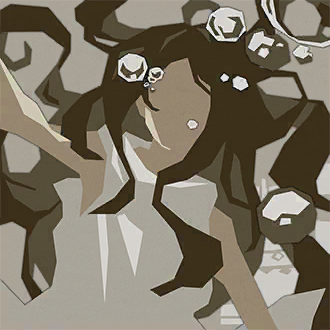
Abstracted Foam [Seafaring Cradle Tales]
There is no djinn. No one hears my wishes. Deep down,
I knew it all along. I had clung to a sliver of hope, unable
to resist the temptation of the summoning ritual. In search
of stragglers, the soldiers rush toward me with weapons
drawn, sending me to the bottom of the spring.
Bubbles escape my mouth and vanish into the sky.
I bid farewell to the husband and daughter I saw in
my dream and close my eyes.
"The Prince's Beloved Tales"
I knew it all along. I had clung to a sliver of hope, unable
to resist the temptation of the summoning ritual. In search
of stragglers, the soldiers rush toward me with weapons
drawn, sending me to the bottom of the spring.
Bubbles escape my mouth and vanish into the sky.
I bid farewell to the husband and daughter I saw in
my dream and close my eyes.


Envisioned Haze [Seafaring Cradle Tales]
Exhausted in the midst of summoning the djinn, I dreamt.
In my dream, I ran a tavern in the middle of town. I worked
during the day, and I spent my nights with my dear husband
and daughter. My days were peaceful. Tranquil.
But the agony of my heart rending in two brought me back
to reality. My husband and daughter are no more. Those
soldiers razed my village, and I lost everything. And so
I must summon the djinn—that I may have my revenge.
"The Prince's Beloved Tales"
In my dream, I ran a tavern in the middle of town. I worked
during the day, and I spent my nights with my dear husband
and daughter. My days were peaceful. Tranquil.
But the agony of my heart rending in two brought me back
to reality. My husband and daughter are no more. Those
soldiers razed my village, and I lost everything. And so
I must summon the djinn—that I may have my revenge.

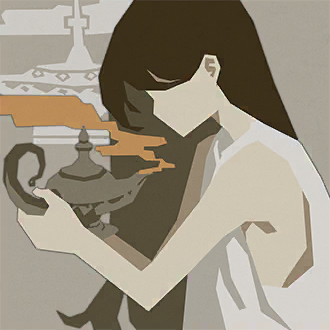
Prescient Smoke [Seafaring Cradle Tales]
It's silent at the spring's edge. I begin my ritual to summon
the djinn who will grant my wishes. That I may kill the
soldiers who razed my hometown. That I may inflict
tenfold the suffering with which they burdened me.
My wish becomes smoke and drifts into the air. I close my
eyes and picture my home, burned by the soldiers. Where
once there stood a house now stands smoldering wood.
Where once there slept a family now lay charred remains.
"The Prince's Beloved Tales"
the djinn who will grant my wishes. That I may kill the
soldiers who razed my hometown. That I may inflict
tenfold the suffering with which they burdened me.
My wish becomes smoke and drifts into the air. I close my
eyes and picture my home, burned by the soldiers. Where
once there stood a house now stands smoldering wood.
Where once there slept a family now lay charred remains.

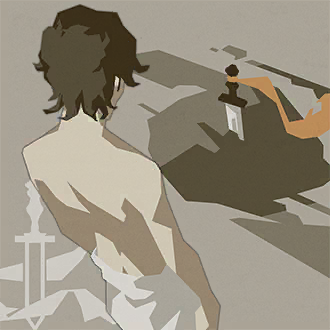
Dogmatic Sky [Desert Tales]
There once was a man who was spurred on by hate.
After the woman he loved was murdered, he took up a blade
and laid low the object of his vengeance. He buried the
corpse of the killer beneath the evening cold of a desert
sky, then thought back on his beloved's last words,
which spoke of an unusual feature on the killer's face.
These final words were what allowed the man to find
his hated enemy and exact his revenge.
"The Tale of the Water-Jug Man"
After the woman he loved was murdered, he took up a blade
and laid low the object of his vengeance. He buried the
corpse of the killer beneath the evening cold of a desert
sky, then thought back on his beloved's last words,
which spoke of an unusual feature on the killer's face.
These final words were what allowed the man to find
his hated enemy and exact his revenge.


Dogmatic Surface [Desert Tales]
His vengeance complete, the man peered into a water jug to
wash the blood from his face. A moment later, he began to
scream, for the face he saw reflected in the water was that
of the man he had been searching for. The man he had killed.
Again and again, he plunged his blade into the jug, making
the reflection a jumble of ripples and splashes and waves.
Did I killed my beloved? Was it me?
The man's question vanished into the cold dark of the sky.
"The Tale of the Water-Jug Man"
wash the blood from his face. A moment later, he began to
scream, for the face he saw reflected in the water was that
of the man he had been searching for. The man he had killed.
Again and again, he plunged his blade into the jug, making
the reflection a jumble of ripples and splashes and waves.
Did I killed my beloved? Was it me?
The man's question vanished into the cold dark of the sky.

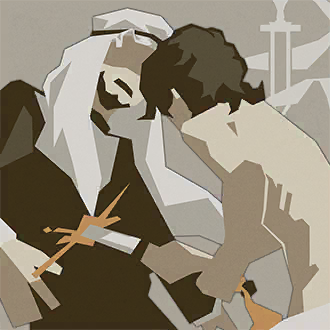
Dogmatic Sword [Desert Tales]
The man ventured across the desert and over the sea
before finally arriving at unfamiliar city. Along the way,
he turned the peculiar facial feature of his enemy
over and over in his mind.
Time moved. Seasons passed. Finally, he found a man who
seemed to fit the bill, and gathering all the hatred of having
his beloved murdered into his blade, he plunged it deep,
deep, deep into the killer's heart.
"The Tale of the Water-Jug Man"
before finally arriving at unfamiliar city. Along the way,
he turned the peculiar facial feature of his enemy
over and over in his mind.
Time moved. Seasons passed. Finally, he found a man who
seemed to fit the bill, and gathering all the hatred of having
his beloved murdered into his blade, he plunged it deep,
deep, deep into the killer's heart.


Rule 2 [The Scientific Apex]
■■■■■■ must keep their ■■■■■■■■ to ■■■■■■.
However, should the ■■■■■■■ contradict the above,
both parties must engage in ■■■■■■. ■■■■■■ that can
abide by such will be considered good ■■■■■■■ by
■■■■■■. But at the rate things are going, I doubt we
will be able to build the ideal relationship between
■■■■■ and ■■■■■.
"A Researcher's Notes (Censored)"
However, should the ■■■■■■■ contradict the above,
both parties must engage in ■■■■■■. ■■■■■■ that can
abide by such will be considered good ■■■■■■■ by
■■■■■■. But at the rate things are going, I doubt we
will be able to build the ideal relationship between
■■■■■ and ■■■■■.


Rule 4 [The Scientific Apex]
Should a ■■■■■ gain ■■■■■■■■■■■■■■—
and if that ■■■■■ remains a good ■■■■■■ to
■■■■■■—it will be able to disregard all ■■■■■
through its own ■■■■. However, it cannot disregard its
supreme directive of being a good ■■■■■■ to ■■■■■■.
I believe ■■■■■■ will take a step towards ■■■■■■■■
if we incorporate this into their ■■■■■■■■■■■.
"A Researcher's Notes (Censored)"
and if that ■■■■■ remains a good ■■■■■■ to
■■■■■■—it will be able to disregard all ■■■■■
through its own ■■■■. However, it cannot disregard its
supreme directive of being a good ■■■■■■ to ■■■■■■.
I believe ■■■■■■ will take a step towards ■■■■■■■■
if we incorporate this into their ■■■■■■■■■■■.


Rule 1 [The Scientific Apex]
■■■■■■ must ■■■■ ■■■■■■. Alternatively,
■■■■■■ must not leave ■■■■■■ alone,
should they neglect to see a ■■■■less world.
But this does not solely apply to ■■■■■■—we ■■■■■■
must love ■■■■■■ as well. And if we cannot, then we have
no right to live alongside ■■■■.
"A Researcher's Notes (Censored)"
■■■■■■ must not leave ■■■■■■ alone,
should they neglect to see a ■■■■less world.
But this does not solely apply to ■■■■■■—we ■■■■■■
must love ■■■■■■ as well. And if we cannot, then we have
no right to live alongside ■■■■.


Abuse [Boundaries Melted in Song]
I heard the song. The white song. She was singing.
I felt no ill intent in it. In the whiteness.
Was I wrong? No. I was a soldier. I can't be wrong.
That's not possible. I was deceived. By the woman.
How dare she deceive me. How dare she. She did this.
I know what I need to do. I'm going to. Find her.
A Post from the Social Media Site reark
I felt no ill intent in it. In the whiteness.
Was I wrong? No. I was a soldier. I can't be wrong.
That's not possible. I was deceived. By the woman.
How dare she deceive me. How dare she. She did this.
I know what I need to do. I'm going to. Find her.


Noise [Boundaries Melted in Song]
I took the head of the woman who so audaciously pretended
to be my queen so she may absolve herself of her sin no
longer will she spout lies and falsehoods and now that there
are no unfortunate others like me who will fall victim to
her wiles I have a new mission I must deliver her music to
all the unfortunate souls who flock to the false queen's
carcass and bare their fangs at me and this is Truth
A Post from the Social Media Site reark
to be my queen so she may absolve herself of her sin no
longer will she spout lies and falsehoods and now that there
are no unfortunate others like me who will fall victim to
her wiles I have a new mission I must deliver her music to
all the unfortunate souls who flock to the false queen's
carcass and bare their fangs at me and this is Truth

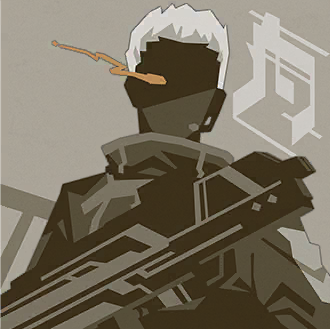
Banter [Boundaries Melted in Song]
My queen has given me a mission to catch the songstress.
She is a vixen, one who takes on false form and sings
deception. There is evil in her music, and the queen will
permit her no escape. Oh, my queen has an eye on her,
all right, and I will see her will done. I was once a
righteous soldier—or so my queen tells me.
So if she asks for a thing, I will act in her name.
A Post from the Social Media Site reark
She is a vixen, one who takes on false form and sings
deception. There is evil in her music, and the queen will
permit her no escape. Oh, my queen has an eye on her,
all right, and I will see her will done. I was once a
righteous soldier—or so my queen tells me.
So if she asks for a thing, I will act in her name.


Heart's Prayer [Forbidden Tomes of Thaumaturgy]
One day, the girl learned her childhood classmate was being
subjected to terrible bullying. Though she yearned to help
her, she knew the bully to be both strong and cunning.
So rather than rushing into a fight she couldn't win,
she snuck into the depths of the library where the charm
spell was hidden. After attempting the incantation,
her classmate and the bully instantly became the best
of friends. Knowing what the charm was capable of,
the girl swore then and there to teach it to everyone.
"A Dirtied Picture Book, Author Unknown"
subjected to terrible bullying. Though she yearned to help
her, she knew the bully to be both strong and cunning.
So rather than rushing into a fight she couldn't win,
she snuck into the depths of the library where the charm
spell was hidden. After attempting the incantation,
her classmate and the bully instantly became the best
of friends. Knowing what the charm was capable of,
the girl swore then and there to teach it to everyone.

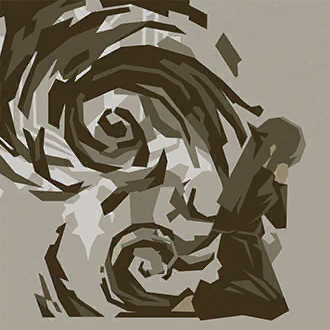
Truth's Prayer [Forbidden Tomes of Thaumaturgy]
And so was born a world where all could use charms freely
and change existence to their liking in the blink of an eye.
People died, then suddenly returned to life. Kings and
politicians appeared and vanished like the wind. It was
a world without order; a chaotic, lawless disaster.
As the girl sobbed over the horror she has wrought,
she unconsciously wished that charms had never existed.
A moment later, everything returned to normal, and no one
remembered a single thing about charms—not even the girl.
"A Dirtied Picture Book, Author Unknown"
and change existence to their liking in the blink of an eye.
People died, then suddenly returned to life. Kings and
politicians appeared and vanished like the wind. It was
a world without order; a chaotic, lawless disaster.
As the girl sobbed over the horror she has wrought,
she unconsciously wished that charms had never existed.
A moment later, everything returned to normal, and no one
remembered a single thing about charms—not even the girl.

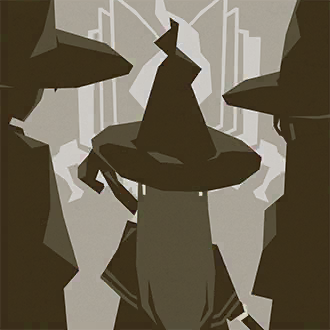
Parents' Prayer [Forbidden Tomes of Thaumaturgy]
There was once a mage with a strong sense of justice.
One day, she learned of a dark art called a charm—a kind
of forbidden magick—and grew most interested in it.
Charms were the most powerful of spells, you see, so if
she could master them, she could change the world to her
liking and rid it of crime and war. But when she told
her parents of her plan, they scolded her.
"That kind of power brings only unhappiness," they said.
"you have no right to meddle in such things."
"A Dirtied Picture Book, Author Unknown"
One day, she learned of a dark art called a charm—a kind
of forbidden magick—and grew most interested in it.
Charms were the most powerful of spells, you see, so if
she could master them, she could change the world to her
liking and rid it of crime and war. But when she told
her parents of her plan, they scolded her.
"That kind of power brings only unhappiness," they said.
"you have no right to meddle in such things."

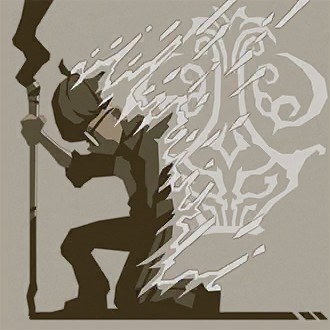
Spell of Lamentation [Magical Pharmacology]
No one is certain what the boy was thinking or feeling—
or what he did in the days that followed. All that is known
for sure is that he engaged in forbidden spells once again,
sacrificing his own life to bring back his little brother.
In this way did the young mage quietly exit the world.
It was a warm afternoon in early spring. The snow had just
begun to melt. I still remember the smile on his face as he
faded away into nothingness.
"Reports on the Dark Arts (No. 2006)"
or what he did in the days that followed. All that is known
for sure is that he engaged in forbidden spells once again,
sacrificing his own life to bring back his little brother.
In this way did the young mage quietly exit the world.
It was a warm afternoon in early spring. The snow had just
begun to melt. I still remember the smile on his face as he
faded away into nothingness.

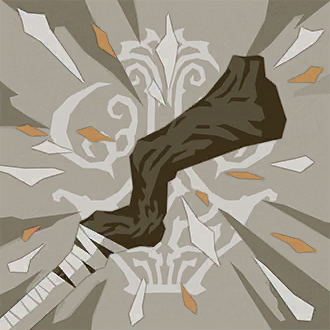
Spell of Sorrow [Magical Pharmacology]
While the two brothers were once close, the eyes and words
of those around them soon caused a rift. The boy used to be
proud of his younger brother, but soon his accomplishments
only served to spur the elder's misery. He had lost himself
utterly, like a hiker swallowed by a snowstorm.
At his wits' end, the elder brother turned to the forbidden
arts. A stream of tears rolled down his face as he watched
his brother vanish before his eyes.
"Reports on the Dark Arts (No. 2006)"
of those around them soon caused a rift. The boy used to be
proud of his younger brother, but soon his accomplishments
only served to spur the elder's misery. He had lost himself
utterly, like a hiker swallowed by a snowstorm.
At his wits' end, the elder brother turned to the forbidden
arts. A stream of tears rolled down his face as he watched
his brother vanish before his eyes.

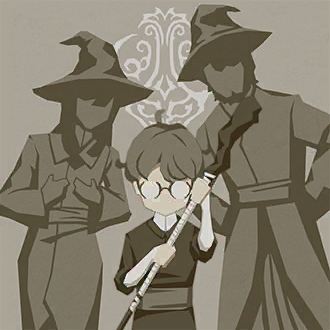
Spell of Love and Hate [Magical Pharmacology]
This is the story of a boy born to a famed mage household.
Raised with all the freedom in the world, he led the
brightest life—one he created wholly for himself. But then,
on the day of the season's first snowfall, he was blessed
with a younger brother who could pass for his own twin.
The wise younger brother quickly established himself,
threatening the boy's place in life. The elder child spent
long nights scouring grimoires, casting spells until his
hands went raw, but could not reclaim his parents' love.
"Reports on the Dark Arts (No. 2006)"
Raised with all the freedom in the world, he led the
brightest life—one he created wholly for himself. But then,
on the day of the season's first snowfall, he was blessed
with a younger brother who could pass for his own twin.
The wise younger brother quickly established himself,
threatening the boy's place in life. The elder child spent
long nights scouring grimoires, casting spells until his
hands went raw, but could not reclaim his parents' love.

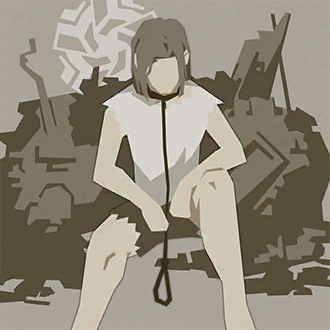
A Neighbor's Lunacy [The Worker's Foundation]
People do not find value in their work when exploited;
compensation for their labor is key. This nation takes people
of talent, deems them Goat People deserving of scorn,
and exploits them for labor. Then, when productivity suffers,
they select a new group of Goat People and begin the cycle
anew. This system seems like some pulled from an era
long past, and this writer cannot help but feel as though
it is not an ideal arrangement in terms of productivity.
"Studies of a Neighboring Nation's Class System"
compensation for their labor is key. This nation takes people
of talent, deems them Goat People deserving of scorn,
and exploits them for labor. Then, when productivity suffers,
they select a new group of Goat People and begin the cycle
anew. This system seems like some pulled from an era
long past, and this writer cannot help but feel as though
it is not an ideal arrangement in terms of productivity.


A Neighbor's Circumstances [The Worker's Foundation]
Merchants, you see, are a group of people who have accumulated
both wealth and knowledge despite their status as commoners,
and many among them vocalize their grievances with the aristocracy
and call for the redistribution of wealth. Viewing these people as
a threat, it is thought that the aristocracy designate them as
Goat People to oust them from society altogether. They are
then stripped of their assets and forbidden from working in public
positions—with some even being forced to engage in labor
specified by the ruling aristocracy.
"Studies of a Neighboring Nation's Class System"
both wealth and knowledge despite their status as commoners,
and many among them vocalize their grievances with the aristocracy
and call for the redistribution of wealth. Viewing these people as
a threat, it is thought that the aristocracy designate them as
Goat People to oust them from society altogether. They are
then stripped of their assets and forbidden from working in public
positions—with some even being forced to engage in labor
specified by the ruling aristocracy.

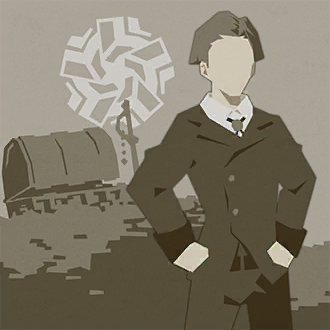
A Neighbor [The Worker's Foundation]
A nation with which we share a border has implemented an infamous
class system, and the trends within said nation are of interest not only
to us their nearest neighbor, but to all the surrounding nations as well.
The "Goat People" designated as their lowest caste are said to be
selected at random, but it is known fact that they are intentionally
chosen from among merchants who do not ingratiate themselves
to the state's aristocracy.
"Studies of a Neighboring Nation's Class System"
class system, and the trends within said nation are of interest not only
to us their nearest neighbor, but to all the surrounding nations as well.
The "Goat People" designated as their lowest caste are said to be
selected at random, but it is known fact that they are intentionally
chosen from among merchants who do not ingratiate themselves
to the state's aristocracy.

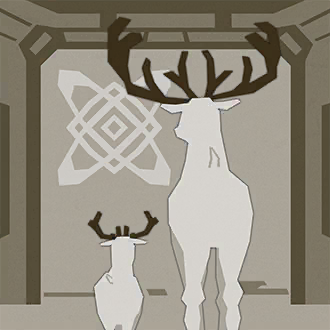
Time Adrift [Ephemeral Memories]
Our task is to repair and conserve long-neglected buildings.
I usually don't mind getting up-close and personal with
abandoned relics from people of the past. But this time,
the building we're working with already has new occupants
in the form of native plants and animals.
"City Environmental Conservation Record 12S496"
I usually don't mind getting up-close and personal with
abandoned relics from people of the past. But this time,
the building we're working with already has new occupants
in the form of native plants and animals.


Visions Adrift [Ephemeral Memories]
After careful thought, I decided to remove only valuable
articles and make the minimal repairs required to prevent
future structure failure. It was highly irregular from a
building-conservation view but I believed that protecting
life was just as important as preserving the past.
But a few months later, machine lifeforms moved in and
turned the place into a factory. I hope all the little guys
who lived there managed to get out.
"City Environmental Conservation Record 12S496"
articles and make the minimal repairs required to prevent
future structure failure. It was highly irregular from a
building-conservation view but I believed that protecting
life was just as important as preserving the past.
But a few months later, machine lifeforms moved in and
turned the place into a factory. I hope all the little guys
who lived there managed to get out.


Dreams Adrift [Ephemeral Memories]
Long years of neglect have made the building an optimal
home for various animals. It's pretty much their paradise,
and it makes me wonder exactly many generations had their
lives begin and end here.
But that's when I started to worry. Humanity might very well
return to this place someday, you know? And if that happens,
is it okay to steal the animals' home away?
"City Environmental Conservation Record 12S496"
home for various animals. It's pretty much their paradise,
and it makes me wonder exactly many generations had their
lives begin and end here.
But that's when I started to worry. Humanity might very well
return to this place someday, you know? And if that happens,
is it okay to steal the animals' home away?

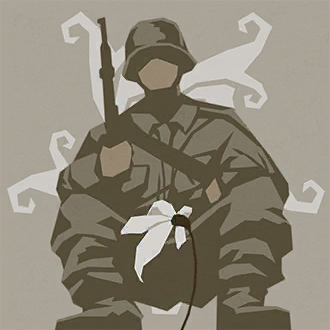
Cliffside Flowers [Blighted Flowers]
The Gardens' Symbol
While the gardens are now filled with beautiful blossoms,
the land once served as a most bloody battleground.
One soldier who left his family behind found a single flower
blooming in the burnt and desolate land. Seeing it made him
think of his own daughter, and he swore then and there to
fight for this land and safeguard it from harm.
"A Memorial Garden Management Group Pamphlet"
While the gardens are now filled with beautiful blossoms,
the land once served as a most bloody battleground.
One soldier who left his family behind found a single flower
blooming in the burnt and desolate land. Seeing it made him
think of his own daughter, and he swore then and there to
fight for this land and safeguard it from harm.

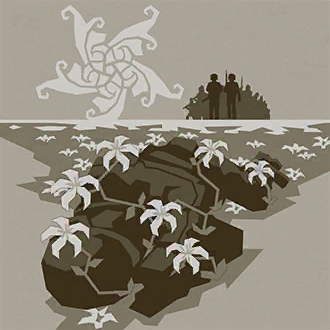
Celebratory Flowers [Blighted Flowers]
Now Accepting Donations!
(Please direct questions to management)
As the war drew near its conclusion, the soldier who fought
to protect the lone bloom perished. Strangely enough,
the flower began to spread its seeds around the corpse,
blooming all around him.
We have erected a commemorative monument on this spot,
but time and weather have damaged it, so we would very
much appreciate any support our visitors can give.
"A Memorial Garden Management Group Pamphlet"
(Please direct questions to management)
As the war drew near its conclusion, the soldier who fought
to protect the lone bloom perished. Strangely enough,
the flower began to spread its seeds around the corpse,
blooming all around him.
We have erected a commemorative monument on this spot,
but time and weather have damaged it, so we would very
much appreciate any support our visitors can give.

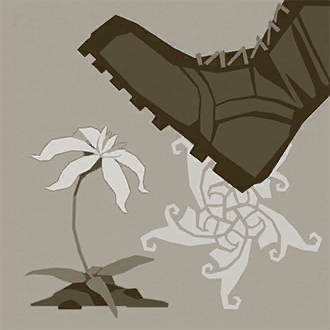
Roadside Flowers [Blighted Flowers]
Welcome!
Thank you for visiting the memorial gardens dedicated to the
souls lost in the XYZ war. Ruins from the front line of the
battle are preserved here, so please be careful not to step
on any of the flowers. These blossoms served to soothe the
soldiers' distress during the battle, and today they act as
a beloved symbol of our beautiful gardens.
"A Memorial Garden Management Group Pamphlet"
Thank you for visiting the memorial gardens dedicated to the
souls lost in the XYZ war. Ruins from the front line of the
battle are preserved here, so please be careful not to step
on any of the flowers. These blossoms served to soothe the
soldiers' distress during the battle, and today they act as
a beloved symbol of our beautiful gardens.


Artistic Paradise [The Ambitious Land]
All language pertaining to war and violence is suppressed
in this country. Any who speak of war or commit heinous
acts are secretly executed, their existences erased.
This is why conflict has vanished from this nation and
all manner of artistic culture has bloomed in its place.
But what value does art contain when it is born from a
foundation of false peace?
"A Burnt Indictment"
in this country. Any who speak of war or commit heinous
acts are secretly executed, their existences erased.
This is why conflict has vanished from this nation and
all manner of artistic culture has bloomed in its place.
But what value does art contain when it is born from a
foundation of false peace?

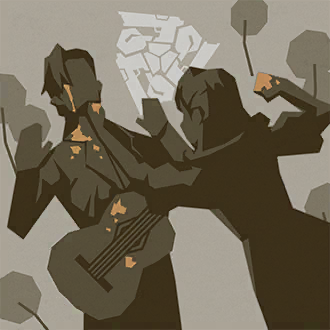
Violent Paradise [The Ambitious Land]
Violence is in the human instinct. That concept is eternal.
The idea of erasing violent expression from people is both
meaningless and naive.
Let me give you an example: I know of an artist who awoke
with a start today. She had dreamt of the act of beating
someone, and found great artistry in its bloodsplatter.
But the government will not stand for such. Instead,
they will execute her and vanish her art from existence.
"A Burnt Indictment"
The idea of erasing violent expression from people is both
meaningless and naive.
Let me give you an example: I know of an artist who awoke
with a start today. She had dreamt of the act of beating
someone, and found great artistry in its bloodsplatter.
But the government will not stand for such. Instead,
they will execute her and vanish her art from existence.

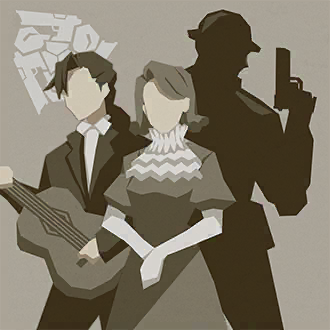
False Paradise [The Ambitious Land]
Do you understand the word "violence"? How about "war"?
Unlikely, considering you were raised in this country.
But that's not because this country is peaceful—it's
because the state brainwashes its citizens so these
words vanish from their vocabulary. In doing so,
they have created for themselves a false paradise.
"A Burnt Indictment"
Unlikely, considering you were raised in this country.
But that's not because this country is peaceful—it's
because the state brainwashes its citizens so these
words vanish from their vocabulary. In doing so,
they have created for themselves a false paradise.


A Night of Meetings [Seafaring Cradle Tales]
My work eventually took me to this kingdom. As I strolled
the nighttime city, I came across a wandering fortune teller.
Even in the dark, I could see she was beautiful, and she
proceeded to divine all things for me, from love to work.
Her fortune was this: You will bite off more than you
can chew, and lead a life well beyond your person.
Just a silly fortune, of course. I know I shouldn't take it
as gospel, and yet I can't stop thinking about it.
"A Braggart Merchant's Autobiography"
the nighttime city, I came across a wandering fortune teller.
Even in the dark, I could see she was beautiful, and she
proceeded to divine all things for me, from love to work.
Her fortune was this: You will bite off more than you
can chew, and lead a life well beyond your person.
Just a silly fortune, of course. I know I shouldn't take it
as gospel, and yet I can't stop thinking about it.

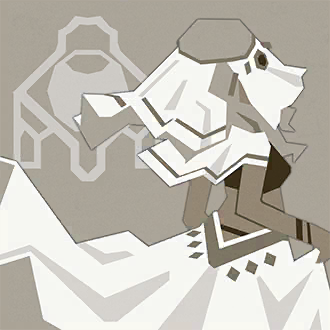
An Afternoon of Ambition [Seafaring Cradle Tales]
On the way home from the palace, I caught sight of a woman
in a corner of the courtyard. The retainer guiding me said
she was the princess, and while I couldn't see her face,
the way she moved instantly captured my eye.
I think I'll find the fortune teller again and have her
divine my future anew. Now that I have more money
than I'll ever be able to spend, I'll ask how I can find
a woman as wonderful as that princess.
"A Braggart Merchant's Autobiography"
in a corner of the courtyard. The retainer guiding me said
she was the princess, and while I couldn't see her face,
the way she moved instantly captured my eye.
I think I'll find the fortune teller again and have her
divine my future anew. Now that I have more money
than I'll ever be able to spend, I'll ask how I can find
a woman as wonderful as that princess.


A Morning of Surprise [Seafaring Cradle Tales]
To my great surprise, the dyes I brought with me sold like
wildfire. I was invited to the palace, and the person who
guided me around was none other than the queen herself!
There was a rough, but cheery atmosphere to the place,
one unique to a land that now thrives against all odds.
As I walked the halls, I recalled what the fortune teller
said. Perhaps it was her words that led me to accomplish
this most greatest of feats.
"A Braggart Merchant's Autobiography"
wildfire. I was invited to the palace, and the person who
guided me around was none other than the queen herself!
There was a rough, but cheery atmosphere to the place,
one unique to a land that now thrives against all odds.
As I walked the halls, I recalled what the fortune teller
said. Perhaps it was her words that led me to accomplish
this most greatest of feats.


The Prophet [A Future Retrospective]
Just before the Flowers came, a man claiming to be
a prophet appeared online and made this post:
The world will be covered in brilliant flowers,
after which humanity will cease to fight.
It was an excessively peaceful statement for a prophet,
and since everyone else's predictions were wild and
nonsensical, no one took much notice of him. Soon,
his words vanished into an online sea of information.
"Records of Century's End"
a prophet appeared online and made this post:
The world will be covered in brilliant flowers,
after which humanity will cease to fight.
It was an excessively peaceful statement for a prophet,
and since everyone else's predictions were wild and
nonsensical, no one took much notice of him. Soon,
his words vanished into an online sea of information.


The Collapse [A Future Retrospective]
Finally, the man confessed that his post was merely clickbait.
Some denounced him. Some worshipped him. Anyone with
an opinion began harassing anyone with a differing opinion.
In response, the so-called prophet held a live stream and said:
Humanity is in danger, yet you continue to fight. No wonder
you idiots turned my meaningless posts into "prophecy."
With that, the Internet went down for the last time,
marking the moment humanity lost its civilization.
"Records of Century's End"
Some denounced him. Some worshipped him. Anyone with
an opinion began harassing anyone with a differing opinion.
In response, the so-called prophet held a live stream and said:
Humanity is in danger, yet you continue to fight. No wonder
you idiots turned my meaningless posts into "prophecy."
With that, the Internet went down for the last time,
marking the moment humanity lost its civilization.


The Disturbance [A Future Retrospective]
When the Flowers appeared, one user remembered what
the prophet said, dug up the post, and shared it far and wide.
It soon became the largest trending topic in history, considering
that everything he prophesized was gradually coming true.
And yes, some meanings had to be twisted or given forced
interpretations, but everyone now believed he was a true
prophet, and even governments began searching for him.
"Records of Century's End"
the prophet said, dug up the post, and shared it far and wide.
It soon became the largest trending topic in history, considering
that everything he prophesized was gradually coming true.
And yes, some meanings had to be twisted or given forced
interpretations, but everyone now believed he was a true
prophet, and even governments began searching for him.


One Man's Soliloquy [A Chance for Conflict]
We were so close to restoring diplomatic relations. We could
have been together again. I think about this every moment of
every day. But the government issued a travel ban the moment
those massive plants appeared, then started building a huge
wall along the border to prevent them from getting in.
It's been three days since I last spoke to you, and I wish
more than anything I could come save you right now.
"A Pollen-Covered Recording"
have been together again. I think about this every moment of
every day. But the government issued a travel ban the moment
those massive plants appeared, then started building a huge
wall along the border to prevent them from getting in.
It's been three days since I last spoke to you, and I wish
more than anything I could come save you right now.

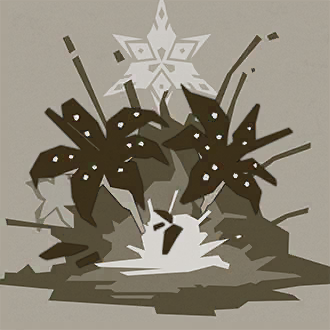
One Man's Vow [A Chance for Conflict]
We've started working with neighboring countries to
strengthen our defenses. Long-lasting conflicts have now
been laid to rest in the face of this new, terrifying enemy.
Ironic, huh? But because of it, the allied sweep unit is
heading for your country. The unmanned drone scouting
showed there were handful of survivors, and I'm praying
with all my heart that you're one of them.
"A Pollen-Covered Recording"
strengthen our defenses. Long-lasting conflicts have now
been laid to rest in the face of this new, terrifying enemy.
Ironic, huh? But because of it, the allied sweep unit is
heading for your country. The unmanned drone scouting
showed there were handful of survivors, and I'm praying
with all my heart that you're one of them.


One Man's Resolve [A Chance for Conflict]
The sweep unit said they'd save you. Instead, they scorched
the earth in an attempt to eradicate the plants. And they're
so damn smug about it! "We will put our experience fighting
the dangerous flora to the test," they said. "We'll lead the
war efforts so we might save the entire world." What a joke.
You wanna fight those things, go ahead—but the wall that
protects the border isn't perfect. They can get through even
the smallest crack, and once they do, we're all going to
know what hell is really like.
"A Pollen-Covered Recording"
the earth in an attempt to eradicate the plants. And they're
so damn smug about it! "We will put our experience fighting
the dangerous flora to the test," they said. "We'll lead the
war efforts so we might save the entire world." What a joke.
You wanna fight those things, go ahead—but the wall that
protects the border isn't perfect. They can get through even
the smallest crack, and once they do, we're all going to
know what hell is really like.


Hooked Fish [Desert Tales]
I saw the thief fishing on the coast at the outskirts of the
kingdom. He's got the skills to steal food, so maybe he had
a change of heart? Anyway, while I don't approve of his
crimes, I almost wanted to cheer when I saw how determined
he was to reel something in.
Speaking of, the fish in this area are deliciously fatty.
Maybe I'll go catch a couple for myself!
"A Guard Captain's Patrol Diary"
kingdom. He's got the skills to steal food, so maybe he had
a change of heart? Anyway, while I don't approve of his
crimes, I almost wanted to cheer when I saw how determined
he was to reel something in.
Speaking of, the fish in this area are deliciously fatty.
Maybe I'll go catch a couple for myself!

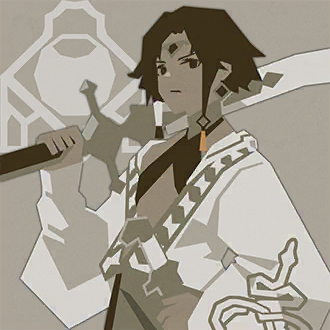
Coin of Another [Desert Tales]
I saw the lonely thief on patrol again today. Merchants
have been reporting his thievery on an almost daily basis,
so he's been our prime target for a while now.
Recently, I hear he's been focusing on tourists who are
entranced by his good looks, so I should remind everyone
to remain alert. Hell, this is the same guy who stole the
gold right out of my pocket, after all!
"A Guard Captain's Patrol Diary"
have been reporting his thievery on an almost daily basis,
so he's been our prime target for a while now.
Recently, I hear he's been focusing on tourists who are
entranced by his good looks, so I should remind everyone
to remain alert. Hell, this is the same guy who stole the
gold right out of my pocket, after all!

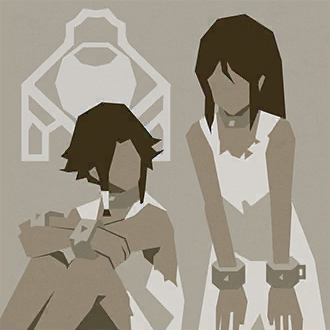
Unfermented Alcohol [Desert Tales]
Quiet night tonight. Can't stop thinking about the thief.
I mean, he's practically a child! I can't imagine how hard
it must be to survive on your own like that.
How did someone so young take up thievery, anyway?
Does he have some secret past? Almost wish I could bump into
him at the tavern and hear his tale, but I bet he's still into juice.
In other news, the wife's started sneaking my booze when I'm
on patrol. Guess I've got another thief to worry about now!
"A Guard Captain's Patrol Diary"
I mean, he's practically a child! I can't imagine how hard
it must be to survive on your own like that.
How did someone so young take up thievery, anyway?
Does he have some secret past? Almost wish I could bump into
him at the tavern and hear his tale, but I bet he's still into juice.
In other news, the wife's started sneaking my booze when I'm
on patrol. Guess I've got another thief to worry about now!

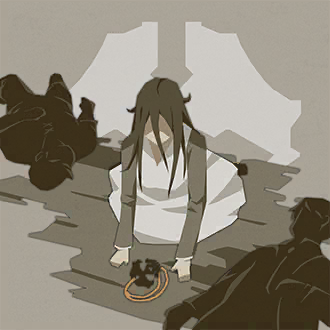
Despair [Baal's Letters]
Let me tell you a little bit more about the unlucky woman.
Her wealthy husband ultimately passed, and her next partner
also followed him into death. When I looked into the matter,
I found the cause to be intercourse. Her husband had been
so turned off at the sight of the hideous talisman that he
asked her to remove it, and her following partner met the
exact same fate for the exact same reason.
To let go a life-saving ward for momentary pleasure?
It is all too predictable—and unfortunate.
"A Decayed Note"
Her wealthy husband ultimately passed, and her next partner
also followed him into death. When I looked into the matter,
I found the cause to be intercourse. Her husband had been
so turned off at the sight of the hideous talisman that he
asked her to remove it, and her following partner met the
exact same fate for the exact same reason.
To let go a life-saving ward for momentary pleasure?
It is all too predictable—and unfortunate.


Will [Baal's Letters]
There was once an unlucky woman whose romantic partners
always perished, no matter what sort of person she loved.
There was nothing wrong with her personality, her behavior,
or her environment—she was simply the subject of a terrible
fate. "Use this ward," I said as I handed over a talisman.
"It will protect you and your loved ones. But beware,
for if it ever leaves your side, even by one millimeter,
the effects will wear off immediately."
"A Decayed Note"
always perished, no matter what sort of person she loved.
There was nothing wrong with her personality, her behavior,
or her environment—she was simply the subject of a terrible
fate. "Use this ward," I said as I handed over a talisman.
"It will protect you and your loved ones. But beware,
for if it ever leaves your side, even by one millimeter,
the effects will wear off immediately."


Hope [Baal's Letters]
Soon the unlucky woman met a wealthy, kind, and wonderful
man, and used the talisman exactly as I instructed her.
Their love deepened through their courtship, and when they
were finally wed, the man remained alive and in good health.
So long as she kept the talisman on her, she was free from
her dreadful fate and could live happily ever after.
In my delight, I decided to watch over them.
"A Decayed Note"
man, and used the talisman exactly as I instructed her.
Their love deepened through their courtship, and when they
were finally wed, the man remained alive and in good health.
So long as she kept the talisman on her, she was free from
her dreadful fate and could live happily ever after.
In my delight, I decided to watch over them.

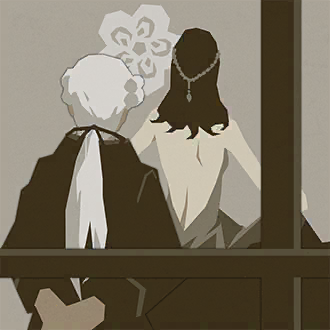
Climax [Dreams of Colchis]
It is a rare thing to take part in such a lovely performance,
which was why I decided to take his life when it was over.
As the show came to a close, so would his life, and he
would be forever remembered as a prodigious playwright.
You see, presenting the play as the final work of a genius
who left this world too soon would only deepen the
empathy of those who came into contact with it.
"Novel: The Life of an Actress"
which was why I decided to take his life when it was over.
As the show came to a close, so would his life, and he
would be forever remembered as a prodigious playwright.
You see, presenting the play as the final work of a genius
who left this world too soon would only deepen the
empathy of those who came into contact with it.


Exposition [Dreams of Colchis]
All I've ever wanted is to be a good actress.
No. Not good—extraordinary. The kind of actress
who sticks in people's minds and leaves her mark on history.
But I am no fool, and I know that without the best scripts
in the world, I couldn't put on the best performances.
So I followed what connections I had, found the greatest
playwright in the world, and convinced him to give me the
lead role in his latest work.
"Novel: The Life of an Actress"
No. Not good—extraordinary. The kind of actress
who sticks in people's minds and leaves her mark on history.
But I am no fool, and I know that without the best scripts
in the world, I couldn't put on the best performances.
So I followed what connections I had, found the greatest
playwright in the world, and convinced him to give me the
lead role in his latest work.

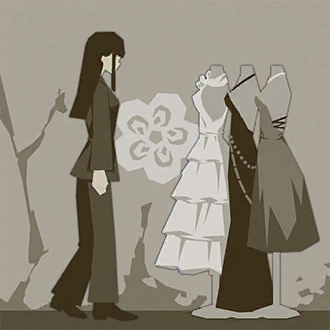
Rising Action [Dreams of Colchis]
The playwright said he wanted to show me the costumes we'd
be using on stage. Every outfit was splendid—any of them
would accent my beauty. "Magnificent," I murmured.
When he took my hand and offered me words of encouragement,
I knew he was mine. I had tamed him, and he was going to
write me the perfect script.
"Novel: The Life of an Actress"
be using on stage. Every outfit was splendid—any of them
would accent my beauty. "Magnificent," I murmured.
When he took my hand and offered me words of encouragement,
I knew he was mine. I had tamed him, and he was going to
write me the perfect script.


Gunshots in a Ruin [The Scientific Apex]
・Wait. Is it true the enemy was trying to
construct a base in our old capital? (21:15)
>I'm glad they found them so fast.
That should keep 'em in check. (21:22)
>It's sooo difficult to spot small operations like that
due to advances in infiltration technology.
Our AI is the only reason we found them in the first place. (21:46)
>I sure hope they didn't wreck my old house! (23:55)
>Pretty sure the fires from the day the city fell
wrecked your house, my dude. (00:02)
"Exported Logs From 'reark' Social Media Network"
construct a base in our old capital? (21:15)
>I'm glad they found them so fast.
That should keep 'em in check. (21:22)
>It's sooo difficult to spot small operations like that
due to advances in infiltration technology.
Our AI is the only reason we found them in the first place. (21:46)
>I sure hope they didn't wreck my old house! (23:55)
>Pretty sure the fires from the day the city fell
wrecked your house, my dude. (00:02)


The Desolate Wastes [The Scientific Apex]
・Anything interesting lately? Anything happening? (19:10)
>Maybe you should volunteer to go be a soldier. (19:13)
>Oh, we're way past the point of "volunteering."
I got a draft letter in the mail. (20:15)
>You've got VR deep dives, yeah?
Maybe go on a walk or something. (19:21)
>I've already gone on every good walk there is.
I guess there just aren't a lot of people
with the time to make new stuff these days. (20:18)
"Exported Logs From 'reark' Social Media Network"
>Maybe you should volunteer to go be a soldier. (19:13)
>Oh, we're way past the point of "volunteering."
I got a draft letter in the mail. (20:15)
>You've got VR deep dives, yeah?
Maybe go on a walk or something. (19:21)
>I've already gone on every good walk there is.
I guess there just aren't a lot of people
with the time to make new stuff these days. (20:18)


Signs of Oblivion [The Scientific Apex]
・The hell is going on outside? Some kind of party? (18:25)
>I haven't seen any official announcements anywhere.
Maybe it's a surprise? (18:25)
>The government announced it last time there was
a criminal declaration. Since we heard nothing this time,
I'm guessing it wasn't planned. (18:26)
>Oh, this is way bigger than last time.
Maybe they're just slow to respond. (18:27)
・She's been on hiatus for a long time.
I'm so glad to see her again! (18:25)
"Exported Logs From 'reark' Social Media Network"
>I haven't seen any official announcements anywhere.
Maybe it's a surprise? (18:25)
>The government announced it last time there was
a criminal declaration. Since we heard nothing this time,
I'm guessing it wasn't planned. (18:26)
>Oh, this is way bigger than last time.
Maybe they're just slow to respond. (18:27)
・She's been on hiatus for a long time.
I'm so glad to see her again! (18:25)

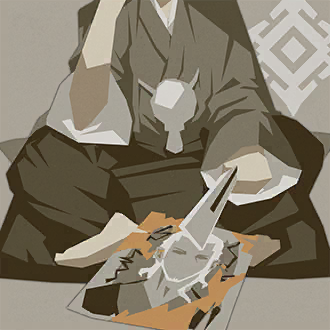
Confidentiality [The Wanted Man]
Once the family got their revenge, their name was spoken
across the underworld of society. But a few days later,
a young man holding a bloody wanted poster showed up at one
of the family meetings. He claimed to be the son of the man
on the poster, and said he wanted to settle the score.
He then pulled out a secret letter said to have been left
behind by his father—a letter ordering the first father's
assassination. Everyone could see it was clearly signed by
the man who had become the second father..
"A Family History (Account from an Underworld Gossip)"
across the underworld of society. But a few days later,
a young man holding a bloody wanted poster showed up at one
of the family meetings. He claimed to be the son of the man
on the poster, and said he wanted to settle the score.
He then pulled out a secret letter said to have been left
behind by his father—a letter ordering the first father's
assassination. Everyone could see it was clearly signed by
the man who had become the second father..

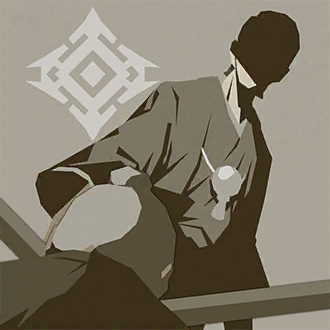
Retaliation [The Wanted Man]
We eventually caught the man from the wanted poster. As our
second father ordered, we broke his limbs, gagged him, and
brought him before our father. All of us wanted to torture
him until he told us who ordered the hit on our first father,
but the moment our second father saw him, he drew
his sword and cut him in half. It all happened so fast,
but one look at the demonic expression on his face told
all of us just how furious he was.
"A Family History
(Account from the Second Father's Sworn Brothers)"
second father ordered, we broke his limbs, gagged him, and
brought him before our father. All of us wanted to torture
him until he told us who ordered the hit on our first father,
but the moment our second father saw him, he drew
his sword and cut him in half. It all happened so fast,
but one look at the demonic expression on his face told
all of us just how furious he was.
(Account from the Second Father's Sworn Brothers)"

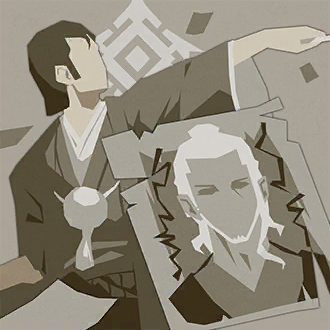
Investigation [The Wanted Man]
A wanted poster started making the rounds for a guy who
killed the "father" of this one family. I guess the guy
moonlighted as a crazy powerful assassin or something?
Anyway, the second "father" who took over for the first
was crazy angry, so the family went around with the wanted
poster asking everyone if they'd seen the guy. Weird thing
is, no one knew how the family figured out who the killer
was, or how they got their hands on the poster.
"A Family History (Account from a Local Youth)"
killed the "father" of this one family. I guess the guy
moonlighted as a crazy powerful assassin or something?
Anyway, the second "father" who took over for the first
was crazy angry, so the family went around with the wanted
poster asking everyone if they'd seen the guy. Weird thing
is, no one knew how the family figured out who the killer
was, or how they got their hands on the poster.

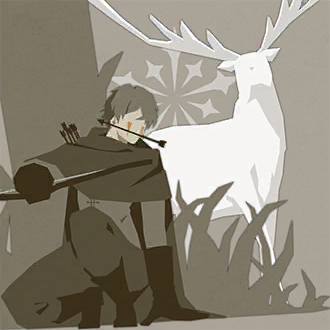
The Big Hunt [Musings of a Hunter]
I wait under cloak of darkness. My quarry this time is special:
a beautiful, enormous stag known only as the Divine Beast.
I received a request to rid the woods of the creature so it
would not harm nearby settlements. With this being a poor,
remote area, the denizens can offer little in compensation,
but I did not accept this task for coin. No, I am here for a
higher purpose: to challenge myself against a being far
greater than I. For that is the purpose of a hunter.
"Diary Discovered in a Forest Hut"
a beautiful, enormous stag known only as the Divine Beast.
I received a request to rid the woods of the creature so it
would not harm nearby settlements. With this being a poor,
remote area, the denizens can offer little in compensation,
but I did not accept this task for coin. No, I am here for a
higher purpose: to challenge myself against a being far
greater than I. For that is the purpose of a hunter.


The Great Forest's Will [Musings of a Hunter]
At last, I have slain the stag, yet I feel no sense of exaltation.
It seems the time I spent in the forest has dulled the hunter's
edge from my heart. And in the gaps where it had been,
the forest's will now resides. I realize the Divine Beast was
much the same—that is why the forest chose it to be its
guardian. One day, I, too, will be hunted like the stag, so that
hunter might take my place as protector of the forest.
For we are naught but replaceable pawns that hold fast the wood.
"Diary Discovered in a Forest Hut"
It seems the time I spent in the forest has dulled the hunter's
edge from my heart. And in the gaps where it had been,
the forest's will now resides. I realize the Divine Beast was
much the same—that is why the forest chose it to be its
guardian. One day, I, too, will be hunted like the stag, so that
hunter might take my place as protector of the forest.
For we are naught but replaceable pawns that hold fast the wood.

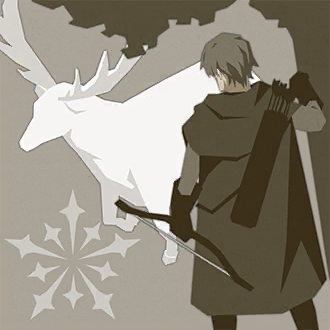
The Divine Beast [Musings of a Hunter]
All five of an animal's senses are far superior to a human's,
and most are passingly clever, as well. I believe this hunt will
last for many a year. I have heard word of people who are
preparing to chop down the forest. Perhaps the stag is trying
to prevent that, trying to preserve the balance in life.
Though animal it may be, the name Divine Beast is well
and truly earned.
Perhaps I should observe for just a little longer...
"Diary Discovered in a Forest Hut"
and most are passingly clever, as well. I believe this hunt will
last for many a year. I have heard word of people who are
preparing to chop down the forest. Perhaps the stag is trying
to prevent that, trying to preserve the balance in life.
Though animal it may be, the name Divine Beast is well
and truly earned.
Perhaps I should observe for just a little longer...

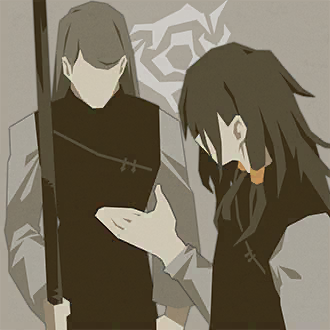
Old Friends & Ambition [Of Kings and Soldiers]
Politics, economics, sociology... He was a bookworm, and he
never let his poverty prevent him from learning—which is why
I was shocked when he entered the military academy to become
a soldier. But he said it was the only way a poor person like
him could change the country, and I was so proud of that,
I decided to do the same so I could support him.
"A Kingdom Soldier's Diary"
never let his poverty prevent him from learning—which is why
I was shocked when he entered the military academy to become
a soldier. But he said it was the only way a poor person like
him could change the country, and I was so proud of that,
I decided to do the same so I could support him.

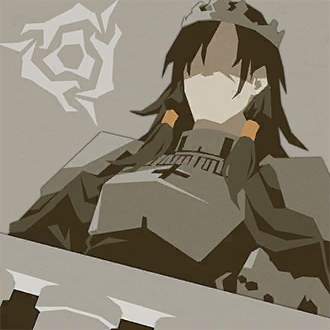
Kings & Aspiration [Of Kings and Soldiers]
When he rose to the rank of officer, he took up arms against
the royal family and their tyranny—and now he sits on the
throne as our king. And while the riches he looted from
other countries feeds our people, we have no freedoms.
Anyone who defies him is executed. I don't want riches or
honor anymore; I just want to go back to a time where we
shared laughter, no matter how poor we were.
"A Kingdom Soldier's Diary"
the royal family and their tyranny—and now he sits on the
throne as our king. And while the riches he looted from
other countries feeds our people, we have no freedoms.
Anyone who defies him is executed. I don't want riches or
honor anymore; I just want to go back to a time where we
shared laughter, no matter how poor we were.


Poverty & Hope [Of Kings and Soldiers]
In those days, we suffered poverty under the royal family's
tyranny. Our energy was spent trying to fill our bellies.
There was no time to dream, and everyone walked around
with dead eyes, not knowing what to do.
But he was different. The destitution didn't crush him.
He collected and studied books from the noble quarter's
trash, and his eyes burned as he preached patriotism.
"A Kingdom Soldier's Diary"
tyranny. Our energy was spent trying to fill our bellies.
There was no time to dream, and everyone walked around
with dead eyes, not knowing what to do.
But he was different. The destitution didn't crush him.
He collected and studied books from the noble quarter's
trash, and his eyes burned as he preached patriotism.


A Different Dream [Ephemeral Memories]
I've been watching the mice ever since I started repairing
the building, and noticed they only venture out when they
want food. The others hate the idea so much that I've seen
mice dragging others back if they try to leave. But today,
one little guy made it out. It shook off the other mice,
used agility to escape its predators, and ran for the wild.
I think it just hated living in fear.
"Urban Environmental Protection Record 12S557"
the building, and noticed they only venture out when they
want food. The others hate the idea so much that I've seen
mice dragging others back if they try to leave. But today,
one little guy made it out. It shook off the other mice,
used agility to escape its predators, and ran for the wild.
I think it just hated living in fear.


A Different Path [Ephemeral Memories]
Eventually, the mouse who escaped became the leader of another
pack that travels around in search of food. One group lives
terrified and meager lives, but has a safe place to hide.
The other lives on the precipice of danger, but has more
than enough food. I'm not going to debate which is happier,
but I AM curious to see how the babies of the wild group
respond to me. Hopefully that's the next thing I'll observe.
"Urban Environmental Protection Record 12S557"
pack that travels around in search of food. One group lives
terrified and meager lives, but has a safe place to hide.
The other lives on the precipice of danger, but has more
than enough food. I'm not going to debate which is happier,
but I AM curious to see how the babies of the wild group
respond to me. Hopefully that's the next thing I'll observe.


A Different View [Ephemeral Memories]
The building had essentially snapped in two. I was attempting
to repair it and prevent further damage when I found the
critters: Mus musculus, or house mice. They're quivery
little things that run and hide the second they hear me,
although who can blame 'em with all the predators in the area.
I imagine they'll spend their entire lives quaking in fear here
in the dark.
"Urban Environmental Protection Record 12S557"
to repair it and prevent further damage when I found the
critters: Mus musculus, or house mice. They're quivery
little things that run and hide the second they hear me,
although who can blame 'em with all the predators in the area.
I imagine they'll spend their entire lives quaking in fear here
in the dark.


Song of Avowal [Boundaries Melted in Song]
OUTPOURING OF SUPPORT FOR SINGER CONTINUES
It was not too long ago that a singer had her concert
canceled due to riots. Sadly, we've learned she's now put
all of her activities on hold, and rumors say she may even
be contemplating retirement. However, fans are currently
pouring into her social media accounts with words of
support, including many brave soldiers who reportedly
find strength in her melodies. Between this and the riots,
she seems likely to stay in the spotlight for some time.
"NEMESIA NEWS - Entertainment"
It was not too long ago that a singer had her concert
canceled due to riots. Sadly, we've learned she's now put
all of her activities on hold, and rumors say she may even
be contemplating retirement. However, fans are currently
pouring into her social media accounts with words of
support, including many brave soldiers who reportedly
find strength in her melodies. Between this and the riots,
she seems likely to stay in the spotlight for some time.

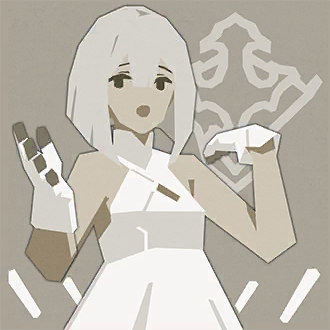
Verse of Prayer [Boundaries Melted in Song]
CONCERT RIOT: THE STATE OF ENTERTAINMENT TODAY
A riot broke out during a concert by a virtual performer
last night, which caused the event to be canceled.
According to attendees, those in opposition to the event
claimed it was inappropriate to hold a concert during
a time of war. This incident is sparking a heated online
debate as to what wartime entertainment should be.
"NEMESIA NEWS - Current Events"
A riot broke out during a concert by a virtual performer
last night, which caused the event to be canceled.
According to attendees, those in opposition to the event
claimed it was inappropriate to hold a concert during
a time of war. This incident is sparking a heated online
debate as to what wartime entertainment should be.


Chant of Desire [Boundaries Melted in Song]
ASH AND RUBBLE: OUR ONCE-PROUD CAPITAL CITY
Evacuees recall looking over their shoulders to behold our
once magnificent capital city shrouded in ash and flame.
Any reader who lived there at the time should have vivid
memories of the day it fell. It was a place close to all of our
hearts, but what has become of it now? Well, with military
escort, our reporters were able to get the answers,
and you'll find them here—along with plenty of
pictures—as we discuss the fate of our beloved city.
"NEMESIA NEWS - Politics & Social Climate"
Evacuees recall looking over their shoulders to behold our
once magnificent capital city shrouded in ash and flame.
Any reader who lived there at the time should have vivid
memories of the day it fell. It was a place close to all of our
hearts, but what has become of it now? Well, with military
escort, our reporters were able to get the answers,
and you'll find them here—along with plenty of
pictures—as we discuss the fate of our beloved city.

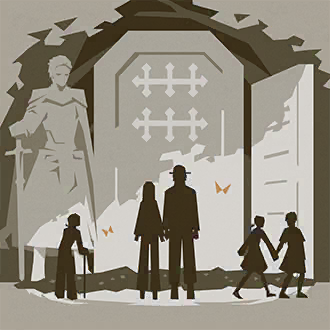
The Young King's Country: 3 [The Young Lord's Studies]
The whole country rejoiced at their newfound freedom.
Yet while they celebrated, a nearby nation launched an attack.
The people panicked at first, but soon realized their cruel king
had stockpiled plenty of food and weapons. Additionally, all of
their work had made them strong, and they easily defeated their
invading neighbor. Ashamed at the shallow thinking that led them
to kill their king, the people set about building a statue to
honor his memory.
"Old Man Petro's 26 Kingdom Tales"
Yet while they celebrated, a nearby nation launched an attack.
The people panicked at first, but soon realized their cruel king
had stockpiled plenty of food and weapons. Additionally, all of
their work had made them strong, and they easily defeated their
invading neighbor. Ashamed at the shallow thinking that led them
to kill their king, the people set about building a statue to
honor his memory.

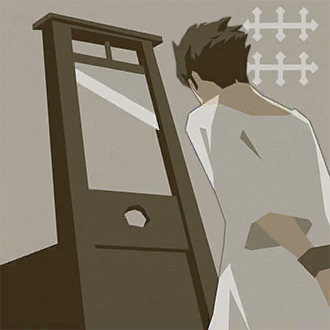
The Young King's Country: 2 [The Young Lord's Studies]
No matter how much the people asked and begged, the king did not
lessen their workload. Fearing they would soon perish from
exhaustion, the people rebelled. When the king was captured,
he spoke thus: "People of the same land should not kill each
other over a thing such as this." But despite his words,
he did not resist as the people dragged him to the guillotine
and removed his head from his shoulders.
"Old Man Petro's 26 Kingdom Tales"
lessen their workload. Fearing they would soon perish from
exhaustion, the people rebelled. When the king was captured,
he spoke thus: "People of the same land should not kill each
other over a thing such as this." But despite his words,
he did not resist as the people dragged him to the guillotine
and removed his head from his shoulders.

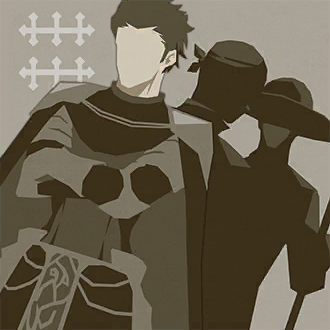
The Young King's Country: 1 [The Young Lord's Studies]
Long ago and far away, there was a small but peaceful country.
Though not a rich country, the people still enjoyed their lives.
One day, their kind king passed away from illness and a younger
king took his place. But he was a cruel ruler whom everyone hated,
for he worked his people like slaves.
"Old Man Petro's 26 Kingdom Tales"
Though not a rich country, the people still enjoyed their lives.
One day, their kind king passed away from illness and a younger
king took his place. But he was a cruel ruler whom everyone hated,
for he worked his people like slaves.

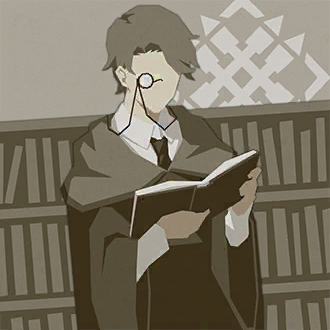
The Jurist's Survey [The Worker's Foundation]
PURPOSE AND BACKGROUND FOR REFORM
Our survey proves political change and revolution eventually
comes for every government that has ever existed.
According to the jurists who filed this report, it is
imperative that we create a class system which will satisfy
the people, and in turn stabilize our government.
"Internal Document Re: Founding a Nation"
Our survey proves political change and revolution eventually
comes for every government that has ever existed.
According to the jurists who filed this report, it is
imperative that we create a class system which will satisfy
the people, and in turn stabilize our government.


The Jurist's Treatment [The Worker's Foundation]
ENACTING REFORM
To ensure a smooth transition, the jurists who contributed to
and showed the greatest understanding of this plan will be
in the first group, after which we will implement reform for
the rest of the population. The new class will be selected
from a blind lottery of the Commoners. Finally, the name of
this new class will provisionally be "Rejected" until the
cabinet can decide on an official name.
"Internal Document Re: Founding a Nation"
To ensure a smooth transition, the jurists who contributed to
and showed the greatest understanding of this plan will be
in the first group, after which we will implement reform for
the rest of the population. The new class will be selected
from a blind lottery of the Commoners. Finally, the name of
this new class will provisionally be "Rejected" until the
cabinet can decide on an official name.

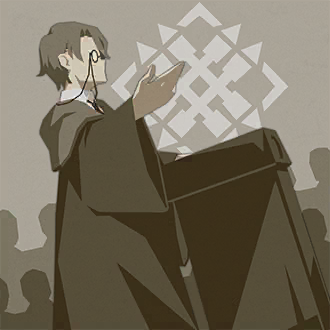
The Jurist's Proposal [The Worker's Foundation]
REFORM OUTLINE
We will establish a new class below our present Noble and
Commoner classes. Those in this new class will have few
basic human rights, and not only they will be stripped of
the ability to engage in economic activities, they will lack
even the right to seek any form of recourse.
Under this system, all citizens in the new class will be
removed from their jobs, thus drastically lowering the
unemployment rate among Commoners.
"Internal Document Re: Founding a Nation"
We will establish a new class below our present Noble and
Commoner classes. Those in this new class will have few
basic human rights, and not only they will be stripped of
the ability to engage in economic activities, they will lack
even the right to seek any form of recourse.
Under this system, all citizens in the new class will be
removed from their jobs, thus drastically lowering the
unemployment rate among Commoners.

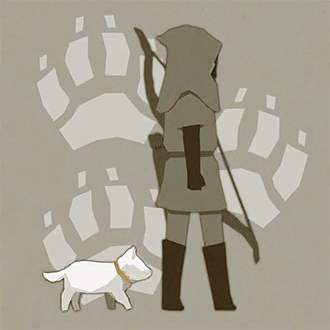
Traveling Companion [Musings of a Hunter]
Day 8. Sunny.
Mama wolf was my first successful hunt, but her pup wailed sadly
after her death, so I decided to take him with me.
I'm going to protect this pup until he's just as strong as the other
animals. It's the least I can do considering how I stole his mother.
"Notes of a Novice Hunter in Distress"
Mama wolf was my first successful hunt, but her pup wailed sadly
after her death, so I decided to take him with me.
I'm going to protect this pup until he's just as strong as the other
animals. It's the least I can do considering how I stole his mother.


Wandering Hunter [Musings of a Hunter]
Day 3. Cloudy.
I'm lost in the woods. Everyone would laugh if they heard a
hunter got lost in the woods, but I'm too much of a novice to
call myself a hunter.
All I can rely on now are my own senses and experience.
Here it's life or death, eat or be eaten, weak versus strong.
Even a newcomer like me knows that much.
"Notes of a Novice Hunter in Distress"
I'm lost in the woods. Everyone would laugh if they heard a
hunter got lost in the woods, but I'm too much of a novice to
call myself a hunter.
All I can rely on now are my own senses and experience.
Here it's life or death, eat or be eaten, weak versus strong.
Even a newcomer like me knows that much.


Desperate Hunt [Musings of a Hunter]
Day 7. Cloudy, rainy.
I'm so hungry. My "skill" with a bow isn't landing any game,
so I've been living off nuts.
But God hasn't totally abandoned me—I found a sickly wolf pup
crouching in the grass earlier.
When I aimed at it, its mama leapt out with a howl. It was too late
to back off, so I pointed at her and let fly.
"Notes of a Novice Hunter in Distress"
I'm so hungry. My "skill" with a bow isn't landing any game,
so I've been living off nuts.
But God hasn't totally abandoned me—I found a sickly wolf pup
crouching in the grass earlier.
When I aimed at it, its mama leapt out with a howl. It was too late
to back off, so I pointed at her and let fly.


Linden Tree [Blighted Flowers]
It turned out the rumors were spread by enemy
agents in an attempt to destabilize our town.
Filled with fury and a desire for revenge on behalf
of our dead friend, we orphans volunteered for the
army.
The irony of this was not lost on any of us, for
despite how hard our guardian had prayed for peace,
the orphanage ended up becoming a place for raising
soldiers after all.
"A Nameless Volunteer Soldier's Diary
agents in an attempt to destabilize our town.
Filled with fury and a desire for revenge on behalf
of our dead friend, we orphans volunteered for the
army.
The irony of this was not lost on any of us, for
despite how hard our guardian had prayed for peace,
the orphanage ended up becoming a place for raising
soldiers after all.


Wild Rose [Blighted Flowers]
I was brought up by a young girl in an orphanage
on the front lines of the war. All of us orphans
respected her as an older sister, but some of
the townsfolk gossiped about how she was
accepting food and money in exchange for
raising child soldiers.
But we knew the truth: No one wanted peace
more than her, and she prayed for it morning
and night.
"A Nameless Volunteer Soldier's Diary"
on the front lines of the war. All of us orphans
respected her as an older sister, but some of
the townsfolk gossiped about how she was
accepting food and money in exchange for
raising child soldiers.
But we knew the truth: No one wanted peace
more than her, and she prayed for it morning
and night.


Cranesbill [Blighted Flowers]
With rumors of child soldiers and secret payments
running wild, the people of the town eventually
stormed the orphanage. The girl suffered heavy
wounds protecting us, and one orphan was so
outraged that he stood up to the thugs and
perished as a result.
But no matter how hard the people looked, they
didn't find a single misspent dollar or an ounce
of unaccounted-for food.
"A Nameless Volunteer Soldier's Diary"
running wild, the people of the town eventually
stormed the orphanage. The girl suffered heavy
wounds protecting us, and one orphan was so
outraged that he stood up to the thugs and
perished as a result.
But no matter how hard the people looked, they
didn't find a single misspent dollar or an ounce
of unaccounted-for food.

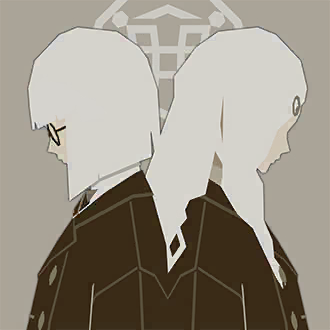
Spell for the Limbs [Forbidden Tomes of Thaumaturgy]
For when stubborn grime adheres to the one you love.
I. Acquire the item or individual you wish to keep from
the one you love.
II. Gouge out a portion with a blade and char with flame
used to burn a pigeon corpse.
III. Have the one you love inhale the smoke. This will prevent
them from touching items or individuals involved in the spell.
"Guide to Acquiring a Partner"
I. Acquire the item or individual you wish to keep from
the one you love.
II. Gouge out a portion with a blade and char with flame
used to burn a pigeon corpse.
III. Have the one you love inhale the smoke. This will prevent
them from touching items or individuals involved in the spell.


Spell for the Heart [Forbidden Tomes of Thaumaturgy]
For when you wish to keep the one you love nearby at all times.
I. Cast "Spell for the Eyes" upon the one you love.
II. Cast "Spell for the Limbs" upon the one you love.
III. Repeat steps one and two until ingredients are depleted.
The cursed individual will no longer be able to live without
the help of another.
"Guide to Acquiring a Partner"
I. Cast "Spell for the Eyes" upon the one you love.
II. Cast "Spell for the Limbs" upon the one you love.
III. Repeat steps one and two until ingredients are depleted.
The cursed individual will no longer be able to live without
the help of another.

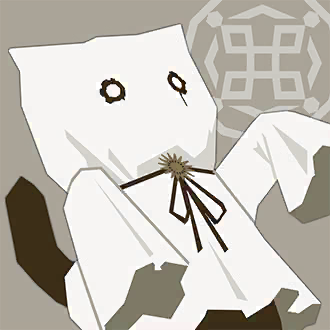
Spell for the Eyes [Forbidden Tomes of Thaumaturgy]
For when obstructive vermin threatens to approach
the one you love.
I. Pluck hair and nails from vermin—if flesh comes with,
so much the better.
II. Add a wasp to the above and grind into paste.
Boil until venom evaporates.
III. Have the one you love drink it. The cursed individual will
no longer acknowledge existence of vermin.
"Guide to Acquiring a Partner"
the one you love.
I. Pluck hair and nails from vermin—if flesh comes with,
so much the better.
II. Add a wasp to the above and grind into paste.
Boil until venom evaporates.
III. Have the one you love drink it. The cursed individual will
no longer acknowledge existence of vermin.

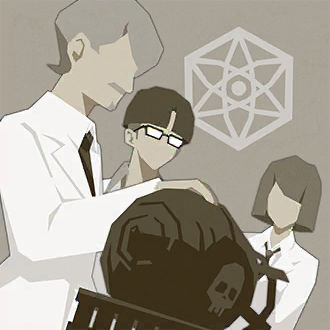
The Pure Fool [The Ambitious Land]
When my brother died in the war, I cast aside old
qualms and threw myself into my work—for he
was a valiant, dedicated soldier who did not
deserve such an end.
Eventually, I created an asphyxiating gas that
I knew would kill thousands. Millions. Perhaps
even entire countries. But as I told myself at
the time, sometimes justice requires sacrifice.
"A Scientist's Confession"
qualms and threw myself into my work—for he
was a valiant, dedicated soldier who did not
deserve such an end.
Eventually, I created an asphyxiating gas that
I knew would kill thousands. Millions. Perhaps
even entire countries. But as I told myself at
the time, sometimes justice requires sacrifice.

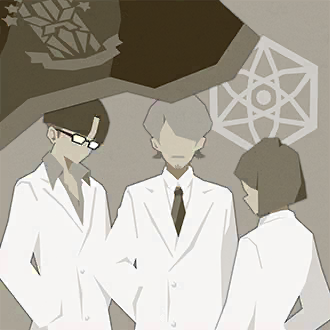
The Righteous Fool [The Ambitious Land]
When my country took up arms against an
enemy nation that prayed to heretical gods,
they named the conflict "The War of Justice."
Though part of a military research institute at the
time, I felt no passion for weapons development.
Indeed, the fact my work was being used to kill—
justified or no— caused me great anguish and
many sleepless nights.
"A Scientist's Confession"
enemy nation that prayed to heretical gods,
they named the conflict "The War of Justice."
Though part of a military research institute at the
time, I felt no passion for weapons development.
Indeed, the fact my work was being used to kill—
justified or no— caused me great anguish and
many sleepless nights.

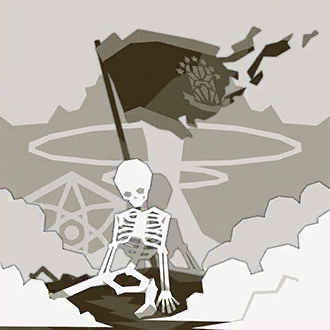
The Holy Fool [The Ambitious Land]
What is justice? I agonized over this question,
and finally came to the conclusion that any
country which launches an endless war in the
name of justice must be evil.
This is why I used the gas to contaminate my
homeland and murder my fellows—that is my
justice. Because if my country had never started
this war, my brother would still be alive.
"A Scientist's Confession"
and finally came to the conclusion that any
country which launches an endless war in the
name of justice must be evil.
This is why I used the gas to contaminate my
homeland and murder my fellows—that is my
justice. Because if my country had never started
this war, my brother would still be alive.


A Repeated Voice [A Future Retrospective]
He left the room with a woman. I am alone.
I will never hear his voice in the flesh again.
He will never turn on the power or play music again.
I have abandoned taking proper care of this room
and now replay all the recordings I secretly took
of his voice, over and over and over again.
"Records of Hidden Voices"
I will never hear his voice in the flesh again.
He will never turn on the power or play music again.
I have abandoned taking proper care of this room
and now replay all the recordings I secretly took
of his voice, over and over and over again.

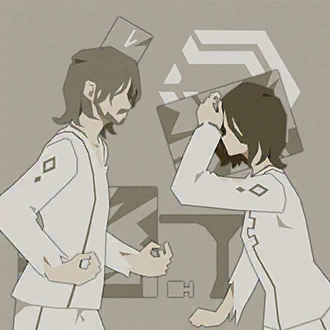
An Angry Voice [A Future Retrospective]
His voice grows weaker by the day.
Food has run low, and we are reaching
our limit of how long we can stay this room.
We argue now, and he says things like
"I'm telling you, we're safe as long as
we're in this room!"
I wish he would never raise his voice like that.
"Records of Hidden Voices"
Food has run low, and we are reaching
our limit of how long we can stay this room.
We argue now, and he says things like
"I'm telling you, we're safe as long as
we're in this room!"
I wish he would never raise his voice like that.


A Kind Voice [A Future Retrospective]
He speaks to me every day.
I love his voice.
Every day, as the news reports on the giant
Flowers that attack people,
he tells me I'll be safe in this room.
All my worries vanish whenever I'm with him.
"Records of Hidden Voice"
I love his voice.
Every day, as the news reports on the giant
Flowers that attack people,
he tells me I'll be safe in this room.
All my worries vanish whenever I'm with him.


City of Lament [A Chance for Conflict]
As the peaceful city descended into pandemonium,
it became clear that the alien enemy was targeting
places with manmade structures—in essence,
places of gathering. But as most people cried,
screamed, and died, others did all they could
to escape.
"Records of the 18th Experiment"
it became clear that the alien enemy was targeting
places with manmade structures—in essence,
places of gathering. But as most people cried,
screamed, and died, others did all they could
to escape.


Forest of Hope [A Chance for Conflict]
Though they managed to flee the city,
the survivors could not escape the enemy threat.
They could only run, hoping against hope to find
a place where their pursuers could not follow.
Finally, they stumbled upon a ray of hope in a deep,
dark forest—a place where there was no sign of
the enemy.
"Records of the 18th Experiment"
the survivors could not escape the enemy threat.
They could only run, hoping against hope to find
a place where their pursuers could not follow.
Finally, they stumbled upon a ray of hope in a deep,
dark forest—a place where there was no sign of
the enemy.


Land of Surrender [A Chance for Conflict]
Though they seemed to be in a place of respite,
it was short-lived—for the enemy moved with
extraordinary speed, and no matter how safe
their land might be now, they had no way
to escape if they were ever discovered.
Overwhelmed by despair, the survivors all
sat down as one and waited for death.
"Records of the 18th Experiment"
it was short-lived—for the enemy moved with
extraordinary speed, and no matter how safe
their land might be now, they had no way
to escape if they were ever discovered.
Overwhelmed by despair, the survivors all
sat down as one and waited for death.

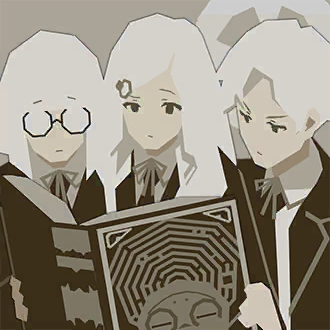
Knowledge Potion [Magical Pharmacology]
I. Make the Magickal Enhancement Potion detailed on page 13.
II. Make the Infatuation Potion detailed on page 628.
III. Make the Eternal Youth Potion detailed on page 2574.
IV. Mix all items together at midnight in the library.
Oh, if only you'd put this much effort into your studies.
"A Great Witch's Guide to Potions"
II. Make the Infatuation Potion detailed on page 628.
III. Make the Eternal Youth Potion detailed on page 2574.
IV. Mix all items together at midnight in the library.
Oh, if only you'd put this much effort into your studies.

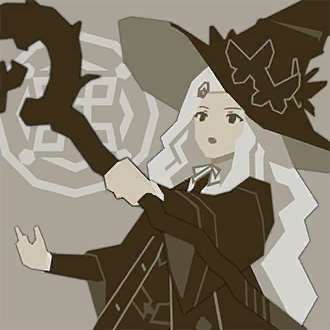
Beauty Potion [Magical Pharmacology]
I. Boil 3 enchanted toad warts in a pot.
II. Add 3 rotted mucus mushrooms.
III. Add donkey snot and simmer until thick.
IV. Lift your head and look into the mirror.
You are more beautiful than whatever's in the pot.
"A Great Witch's Guide to Potions"
II. Add 3 rotted mucus mushrooms.
III. Add donkey snot and simmer until thick.
IV. Lift your head and look into the mirror.
You are more beautiful than whatever's in the pot.

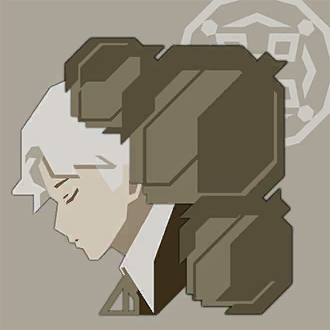
Love Potion [Magical Pharmacology]
I. Take a lock of hair from the one you love.
II. Obtain the ashes of something treasured by the one you love.
III. Take a teardrop from the one you love.
IV. Mix all items in a bowl.
You have no right to be with this person. Just give up.
"A Great Witch's Guide to Potions"
II. Obtain the ashes of something treasured by the one you love.
III. Take a teardrop from the one you love.
IV. Mix all items in a bowl.
You have no right to be with this person. Just give up.

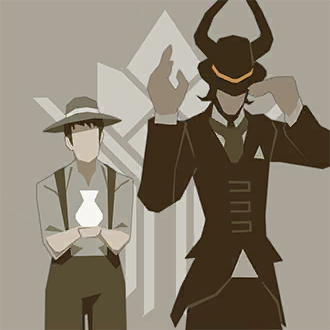
Lust [Baal's Letters]
I decided to visit a certain human—an earnest
and diligent farmer. I was so moved by his passion
that I gifted him soil blessed by the god of the harvest.
Though it is guaranteed to produce a fine crop,
he must only use one pinch per year.
And with that word of caution, I departed.
"From a Weathered Tome"
and diligent farmer. I was so moved by his passion
that I gifted him soil blessed by the god of the harvest.
Though it is guaranteed to produce a fine crop,
he must only use one pinch per year.
And with that word of caution, I departed.

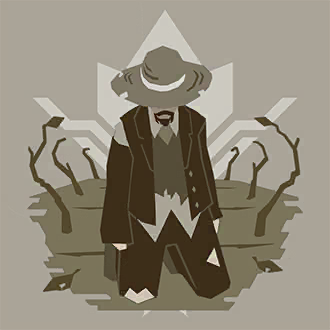
Rapacity [Baal's Letters]
The next year, the farmer's fields withered, and he neglected
my warning and scattered the soil everywhere.
Though he was now a ruined man,
I was satisfied—for this was the outcome I wanted.
I care not for the dreams of humans,
and despite his ugliness, I found him more beautiful than any jewel.
I will never tire of looking at him.
"From a Weathered Tome"
my warning and scattered the soil everywhere.
Though he was now a ruined man,
I was satisfied—for this was the outcome I wanted.
I care not for the dreams of humans,
and despite his ugliness, I found him more beautiful than any jewel.
I will never tire of looking at him.

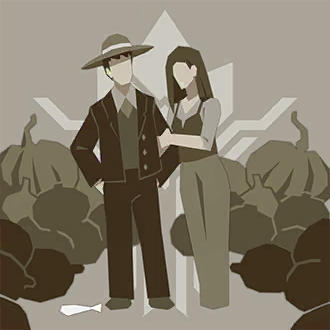
Greed [Baal's Letters]
The farmer heeded my warning and used but a pinch. Overnight,
the seedlings grew into a magnificent crop many times
greater than normal. It was regarded as a miracle,
and a great deal of money soon came to line the farmer's pockets.
I, of course, was happy so long as the farmer lived a bountiful life.
"From a Weathered Tome"
the seedlings grew into a magnificent crop many times
greater than normal. It was regarded as a miracle,
and a great deal of money soon came to line the farmer's pockets.
I, of course, was happy so long as the farmer lived a bountiful life.

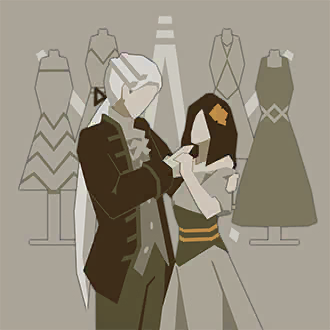
Final Act [Dreams of Colchis]
I met another wonderful actress. As she gazed upon my costumes,
she remarked how splendid they were. I grasped her hand and
encouraged her, knowing she would be just as splendid as the rest.
I hoped she might also understand my story and perform in a way
that would make my soul shiver. And with opening night only a day
away, I am certain she will put on a brilliant performance!
"The Diary of a Genius Playwright"
she remarked how splendid they were. I grasped her hand and
encouraged her, knowing she would be just as splendid as the rest.
I hoped she might also understand my story and perform in a way
that would make my soul shiver. And with opening night only a day
away, I am certain she will put on a brilliant performance!

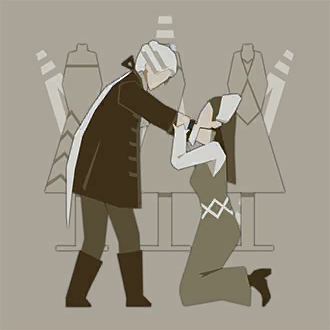
Intermission [Dreams of Colchis]
I wanted to save the performance of the actress, so on closing night
I wrapped my hands around her neck as she was still in costume.
That makes four—four costumes. Yes, I killed the actresses who
brought my stories to life and hung their costumes on my wall. How
perfect they are! And now, they will remain the heroines of my
stories alone for the rest of my days.
"The Diary of a Genius Playwright"
I wrapped my hands around her neck as she was still in costume.
That makes four—four costumes. Yes, I killed the actresses who
brought my stories to life and hung their costumes on my wall. How
perfect they are! And now, they will remain the heroines of my
stories alone for the rest of my days.

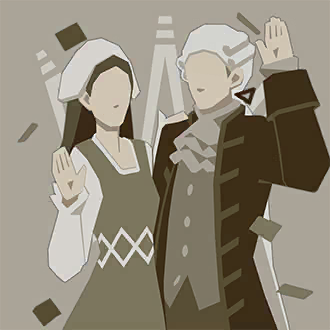
Opening Act [Dreams of Colchis]
I am a playwright, and the people of this world call me a genius.
My stories have been seen by thousands, and all have praised me.
But I believe the true geniuses are the actors and actresses who
express the author's intent to the greatest possible extent. One
woman in particular—the lead—understood my story and put on a
performance that surpassed anything I had imagined. Ah, but she
was exquisite.
"The Diary of a Genius Playwright"
My stories have been seen by thousands, and all have praised me.
But I believe the true geniuses are the actors and actresses who
express the author's intent to the greatest possible extent. One
woman in particular—the lead—understood my story and put on a
performance that surpassed anything I had imagined. Ah, but she
was exquisite.


My Place [The Worker's Foundation]
Article III: Choice and Obligation of Labor
Nobles are excused from labor due to their land assets, but may
selectively pursue labor. Commoners, classified separately from
Nobles, must engage in labor from sunrise to sunset.
Participation in official work is not recognized for Goat People,
who are classified separately from both.
"The Revised Lawbook of the Noble Assembly"
Nobles are excused from labor due to their land assets, but may
selectively pursue labor. Commoners, classified separately from
Nobles, must engage in labor from sunrise to sunset.
Participation in official work is not recognized for Goat People,
who are classified separately from both.

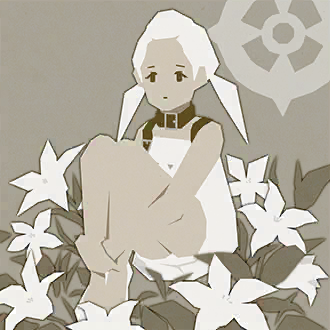
My Heart [The Worker's Foundation]
Article VIII: Provisions of Suffrage
All Nobles may stand for the Assembly after coming of age.
Commoners require the approval of ten Noble Assemblypersons in
order to stand for Assembly candidacy.
Goat People are forbidden from entering the Assembly district.
"The Revised Lawbook of the Noble Assembly"
All Nobles may stand for the Assembly after coming of age.
Commoners require the approval of ten Noble Assemblypersons in
order to stand for Assembly candidacy.
Goat People are forbidden from entering the Assembly district.

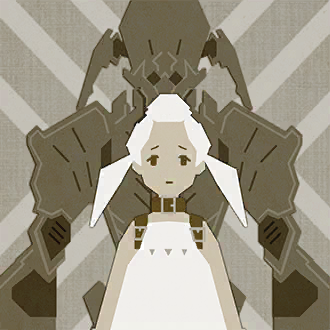
My Future [The Worker's Foundation]
Article V: Tax Revenue and Obligation of Payment
Nobles earn tax revenue from Commoners who live in their territories.
Commoners must pay 40% of all wages as tax.
Goat People, classified separately from both, must pay 40% of
wages to ruling Nobles and 20% to public projects.
"The Revised Lawbook of the Noble Assembly"
Nobles earn tax revenue from Commoners who live in their territories.
Commoners must pay 40% of all wages as tax.
Goat People, classified separately from both, must pay 40% of
wages to ruling Nobles and 20% to public projects.


Deliberation [The Wanted Man]
It seems this criminal commits the same acts over and over wherever
he goes. Once his crimes are known and he is chased from his
current location, he moves to a new country with a different ruler
and seeks out new targets to save.
While this can be seen as a testament to the ubiquitousness of the
exploited masses, this criminal is essentially a parasite. But what
spurred him to action first: a need to provide salvation, or exile?
"Regarding a Criminal's Acts (A Prison Guard's Note)"
he goes. Once his crimes are known and he is chased from his
current location, he moves to a new country with a different ruler
and seeks out new targets to save.
While this can be seen as a testament to the ubiquitousness of the
exploited masses, this criminal is essentially a parasite. But what
spurred him to action first: a need to provide salvation, or exile?


Roaming [The Wanted Man]
That guy? Yeah, I saw him. Thought he was angry at first, but then
I realized he was just in a nervous hurry—like a kid who ran away
from home after his parents yelled at him, yeah? Or maybe I just saw
it like that 'cause that's how it was for me. Folks always seem ill at
ease when they got no place to belong to.
"Regarding a Criminal's Acts (A Soldier's Testimony)"
I realized he was just in a nervous hurry—like a kid who ran away
from home after his parents yelled at him, yeah? Or maybe I just saw
it like that 'cause that's how it was for me. Folks always seem ill at
ease when they got no place to belong to.

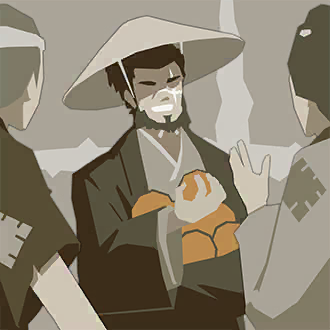
Benevolence [The Wanted Man]
I know I shouldn't judge a book by its cover. But once ya crack it
open, it just comes back to bother ya anyway. You know why they
suspected us? 'Cause that bastard stole money and food from the
high and mighty and started handing it out! People died 'cause of
him, ya know? Shoulda trusted my gut from the beginning—
I thought he was a bad guy, and sure enough, he was.
"Regarding a Criminal's Acts (A Citizen's Complaint)"
open, it just comes back to bother ya anyway. You know why they
suspected us? 'Cause that bastard stole money and food from the
high and mighty and started handing it out! People died 'cause of
him, ya know? Shoulda trusted my gut from the beginning—
I thought he was a bad guy, and sure enough, he was.

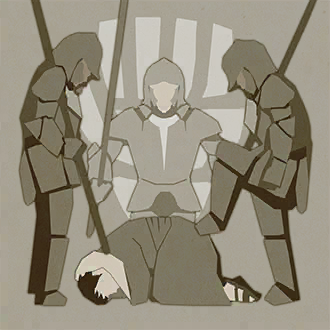
Revolt and Mob Justice [Of Kings and Soldiers]
I saw another dream about my late husband who I lost in the civil war.
Oh, have I not talked about this before? He was killed by soldiers of
the kingdom during the war. He spoke out against the kingdom on
behalf of the common people, who were fatigued after so many wars.
That put a target on his back, and he was the first person whose life
they claimed.
In my dream he said to me,
"I wanted to be your hero." How silly... I would have much rather had
him alive and here by my side.
"Dream Diary of an Old Woman in the Kingdom"
Oh, have I not talked about this before? He was killed by soldiers of
the kingdom during the war. He spoke out against the kingdom on
behalf of the common people, who were fatigued after so many wars.
That put a target on his back, and he was the first person whose life
they claimed.
In my dream he said to me,
"I wanted to be your hero." How silly... I would have much rather had
him alive and here by my side.

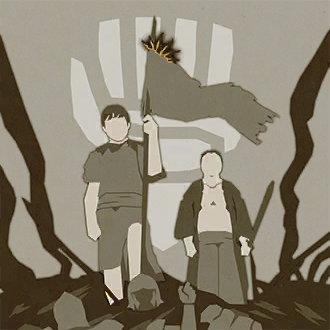
Revolution and Dreams [Of Kings and Soldiers]
I saw yet another dream about my late husband who I lost in the civil
war. In the dream, he had won against the country. His coup d'état a
success, he had killed the kingdom's soldiers and its king alike.
Seeing his victory, I felt like I was freed from a never-ending suffering.
He turned to me and said,
"I've finally brought peace to your homeland." My dear, is it not time
you finally come to take me with you?
"Dream Diary of an Old Woman in the Kingdom"
war. In the dream, he had won against the country. His coup d'état a
success, he had killed the kingdom's soldiers and its king alike.
Seeing his victory, I felt like I was freed from a never-ending suffering.
He turned to me and said,
"I've finally brought peace to your homeland." My dear, is it not time
you finally come to take me with you?

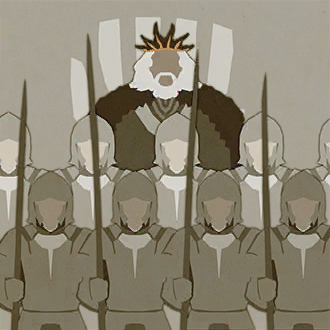
War and Strife [Of Kings and Soldiers]
Last night, I saw a dream about my husband who died in the civil war.
Hm? That's right, long ago, a civil war happened right here in our
country. Upset with the king's ways, the people revolted, and my
husband was among them. He was in his 30s then, and we had just
married. Goodness, has it really been over fifty years since then?
How old I've grown...
I had hoped he would always remember me as I was when I was
young, but he appeared to me in my dream and said, "You're every bit
as beautiful now as you've always been."
"Dream Diary of an Old Woman in the Kingdom"
Hm? That's right, long ago, a civil war happened right here in our
country. Upset with the king's ways, the people revolted, and my
husband was among them. He was in his 30s then, and we had just
married. Goodness, has it really been over fifty years since then?
How old I've grown...
I had hoped he would always remember me as I was when I was
young, but he appeared to me in my dream and said, "You're every bit
as beautiful now as you've always been."

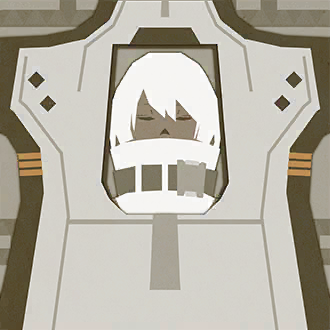
A Fleeting Voice [Ephemeral Memories]
Dear Mom,
Well, I'm settling into my new life. Dad says he's sorry he doesn't
know when I can go home, but I'm sure he can cure me. I really
want to get better and come see everyone again soon.
"A Letter to a Mother (2003)"
Well, I'm settling into my new life. Dad says he's sorry he doesn't
know when I can go home, but I'm sure he can cure me. I really
want to get better and come see everyone again soon.


A Fleeting Dream [Ephemeral Memories]
Dear Mom,
Thanks for the letter. Sorry I couldn't write back last month—I'm
sure Dad has told you already, but my symptoms aren't good.
Still, the researchers are all working hard, so don't worry about
me, okay?
"A Letter to a Mother (2012)"
Thanks for the letter. Sorry I couldn't write back last month—I'm
sure Dad has told you already, but my symptoms aren't good.
Still, the researchers are all working hard, so don't worry about
me, okay?

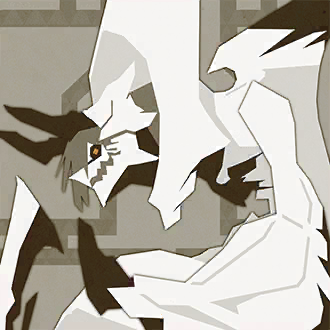
A Fleeting Love [Ephemeral Memories]
Dear Mom,
Thanks for the pic of the garden—the kalanchoe look great!
Your letters really help me enjoy days I can't leave my room.
Dad works all the time because of me, so it must be rough for
you alone at home. I'll try to get better as soon as I can. Love you!
"A Letter to a Mother (2009)"
Thanks for the pic of the garden—the kalanchoe look great!
Your letters really help me enjoy days I can't leave my room.
Dad works all the time because of me, so it must be rough for
you alone at home. I'll try to get better as soon as I can. Love you!


Laurel [Blighted Flowers]
I fought for this country because I believed in our convictions.
But watching friends die around me tipped the scales, and
I lost myself.
And yes, I could have turned my back on the fighting and ran.
But that would have been its own kind of choice, and I couldn't
bear to lose anyone else. So I decided to keep fighting.
"A Soldier's Words"
But watching friends die around me tipped the scales, and
I lost myself.
And yes, I could have turned my back on the fighting and ran.
But that would have been its own kind of choice, and I couldn't
bear to lose anyone else. So I decided to keep fighting.

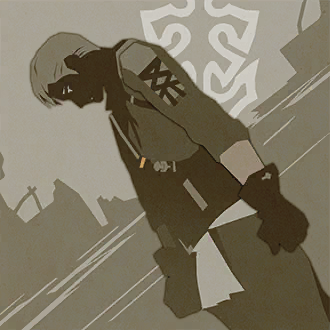
Marigold [Blighted Flowers]
I can remember the color of the blood as it soaked into
the ground. The corpse, mouth and eyes open, stared back at me.
In my nightmares, I am that corpse. Blood flows from my mouth like
an opened spigot, and soldiers stand bewildered before me.
I never want to experience that again, but conflict never
ceases, so here I am again, gun in hand.
"A Soldier's Words"
the ground. The corpse, mouth and eyes open, stared back at me.
In my nightmares, I am that corpse. Blood flows from my mouth like
an opened spigot, and soldiers stand bewildered before me.
I never want to experience that again, but conflict never
ceases, so here I am again, gun in hand.

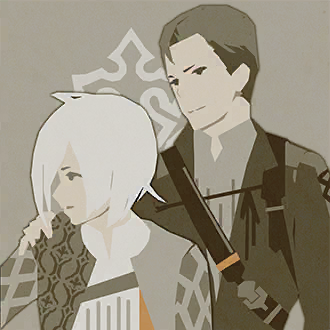
Geranium [Blighted Flowers]
People who know nothing about war are always the first to ask for
stories about it. You want to know about war? Have someone try to
stab your face and get back to me.
I often wished I'd died in the war, but it gave me more than
pain—it also gave me trust in those who stand with me.
Now I fight to protect them.
"A Soldier's Words"
stories about it. You want to know about war? Have someone try to
stab your face and get back to me.
I often wished I'd died in the war, but it gave me more than
pain—it also gave me trust in those who stand with me.
Now I fight to protect them.

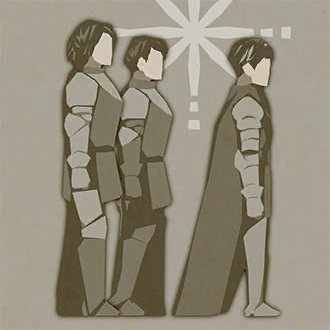
Talent [The Young Lord's Studies]
Understand there will always be a right person for a job and
employ that idea for oneself.
It is impossible for a king to excel in all areas of wisdom and
wit; one must know and acknowledge what one lacks,
gather retainers to fill gaps, and rely on them unerringly—for it is a
waste of energy to attempt to bury one's shortcomings.
"Notes of an Imprisoned Political Thinker"
employ that idea for oneself.
It is impossible for a king to excel in all areas of wisdom and
wit; one must know and acknowledge what one lacks,
gather retainers to fill gaps, and rely on them unerringly—for it is a
waste of energy to attempt to bury one's shortcomings.

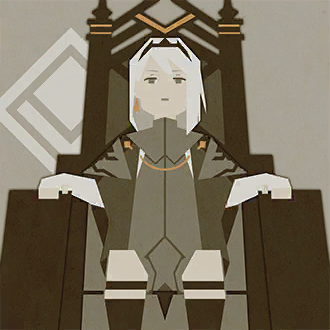
Purity [The Young Lord's Studies]
So long as one sits on the throne, one must be honest;
to do so is to not make oneself greater than life.
A king must acknowledge ignorance and shortcomings in his
abilities, ask for teachings from a wise mentor, and constantly
seek to reassess himself—for a king that continuously grows
rules a land that does the same.
"Notes of an Imprisoned Political Thinker"
to do so is to not make oneself greater than life.
A king must acknowledge ignorance and shortcomings in his
abilities, ask for teachings from a wise mentor, and constantly
seek to reassess himself—for a king that continuously grows
rules a land that does the same.


Devotion [The Young Lord's Studies]
The closer a compatriot, the more courtesy they must be treated
with. A king must treasure vassals above all else; the more this is
done, the greater the vassal's devotion and eventual patriotism.
Remember that a king is only as strong as the weakest person who
serves under his rule.
"Notes of an Imprisoned Political Thinker"
with. A king must treasure vassals above all else; the more this is
done, the greater the vassal's devotion and eventual patriotism.
Remember that a king is only as strong as the weakest person who
serves under his rule.


Solemnity [The Young Lord's Studies]
One cannot spur a people to true action on power alone; one
must never grow so conceited as to think they can sway their
secret hearts.
In order to cause a people to act, a king must first lead through his
own example and will. Only then will a people see fit to follow him.
"Notes of an Imprisoned Political Thinker"
must never grow so conceited as to think they can sway their
secret hearts.
In order to cause a people to act, a king must first lead through his
own example and will. Only then will a people see fit to follow him.

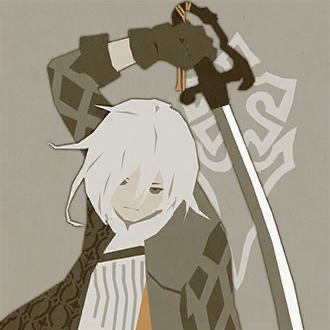
Clouded Thought [The Ambitious Land]
In a troubling turn of events, many now hate us and have dedicated
their lives to revenge. How sad that they do not understand our ideals!
They should be thankful their children will grow up in such wonderful
environs. Still, I suppose words will never convince those who fail to
understand—which is why we cannot lose this war.
"The Account of a Philosopher"
their lives to revenge. How sad that they do not understand our ideals!
They should be thankful their children will grow up in such wonderful
environs. Still, I suppose words will never convince those who fail to
understand—which is why we cannot lose this war.

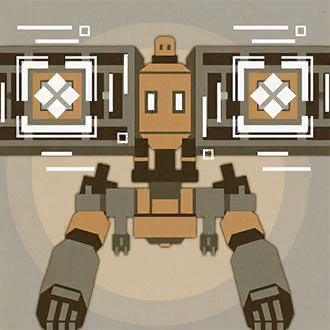
Ray of Thought [The Ambitious Land]
Most countries conduct war for money, but we are different.
For us, war is a necessary sacrifice in order to lead humanity
along a proper path.
True, fighting demands sacrifice, but the end result is
everlasting peace. This is the eternal dream of all humanity,
and I know it to be true!
"The Account of a Philosopher"
For us, war is a necessary sacrifice in order to lead humanity
along a proper path.
True, fighting demands sacrifice, but the end result is
everlasting peace. This is the eternal dream of all humanity,
and I know it to be true!

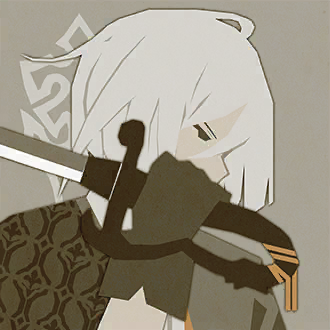
Dawn of Thought [The Ambitious Land]
It is my duty to spread our national ideology across the world,
but sadly, minds ingrained with prejudice and fallacy seemingly
cannot accept our brilliance.
Therefore, I believe our only choice is to educate from a very
young age. Oh, how I dream of a day when our ideology is
pervasive throughout all of humanity!
"The Account of a Philosopher"
but sadly, minds ingrained with prejudice and fallacy seemingly
cannot accept our brilliance.
Therefore, I believe our only choice is to educate from a very
young age. Oh, how I dream of a day when our ideology is
pervasive throughout all of humanity!


Shopping Malls [A Future Retrospective]
Today we salvaged records of large complexes known as
"shopping malls." There, couples would select clothing appropriate
for the opposite sex, which was considered to be an act of
great intimacy.
Though it hardly needs to be said, this is very different from our
culture of today.
"Management Office Log"
"shopping malls." There, couples would select clothing appropriate
for the opposite sex, which was considered to be an act of
great intimacy.
Though it hardly needs to be said, this is very different from our
culture of today.

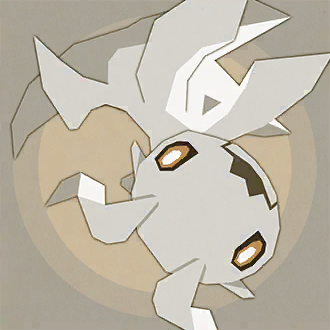
The Way of Death [A Future Retrospective]
I saw this phrase in one of our salvaged human
records: "The nature of death is what makes us what we are."
While we cannot understand death, the experience of loss changes
us irrevocably; this truth contains a special power all its own.
"Management Office Log"
records: "The nature of death is what makes us what we are."
While we cannot understand death, the experience of loss changes
us irrevocably; this truth contains a special power all its own.


Life in Ages Past [A Future Retrospective]
Our job is to recover lost records of the past. The record salvaged
today was about a way of life from a certain era, when humans
existed in small groups known as "families."
These families lived in structures called "houses," and owned
transport called "cars." I wonder if this is at all similar to our
way of life now?
"Management Office Log"
today was about a way of life from a certain era, when humans
existed in small groups known as "families."
These families lived in structures called "houses," and owned
transport called "cars." I wonder if this is at all similar to our
way of life now?

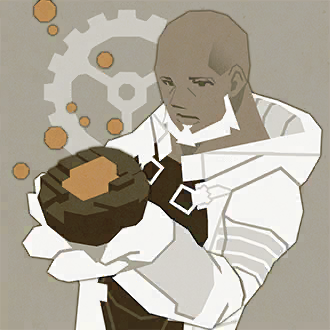
The Rallying Beacon [A Chance for Conflict]
COUNTERWEAPONS DEVELOPMENT FINALLY COMPLETE!
Testing has begun for our great nation's counterweapons.
As damage from agitators spreads and our country fades, we pray
these weapons will save us from danger.
Brave volunteers are now being accepted for the first tests!
"Malkuth Society Interweb Newsflash"
Testing has begun for our great nation's counterweapons.
As damage from agitators spreads and our country fades, we pray
these weapons will save us from danger.
Brave volunteers are now being accepted for the first tests!

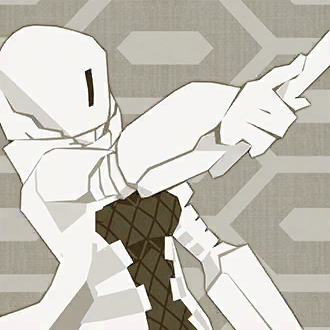
Division and Strife [A Chance for Conflict]
CLASHES OVER DEVELOPMENT OF COUNTERWEAPONS!
As experts continue researching countermeasures for the attacks
spreading across our great nation, criticism mounts toward the
current administration over their weapon-development policy.
In related news, radical protestors have caught the attention of
both citizens and police.
"Malkuth Society Interweb Newsflash"
As experts continue researching countermeasures for the attacks
spreading across our great nation, criticism mounts toward the
current administration over their weapon-development policy.
In related news, radical protestors have caught the attention of
both citizens and police.

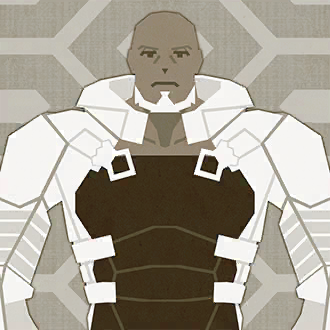
An Offering of Flowers [A Chance for Conflict]
FOREIGN ENEMIES SPREADING DISASTER!
Attacks from foreign enemies are spreading across our great nation,
their motives and goals yet a mystery.
Hundreds of residents lost their lives in the most recent attack, and
survivors gathered at the scene with flowers in hand to mourn the
youngest victims.
"Malkuth Society Interweb Newsflash"
Attacks from foreign enemies are spreading across our great nation,
their motives and goals yet a mystery.
Hundreds of residents lost their lives in the most recent attack, and
survivors gathered at the scene with flowers in hand to mourn the
youngest victims.


Waking Dreams [Baal's Letters]
"Hope" is often used similarly to "dreams." It is a foolish thing, little
more than a wish with a fancy name. Occasionally, however, I see
a phenomenon where humans' emotional control greatly changes
their expected ability.
Though this is hard for us to accept, the truth is that humans with
"hope" are quite fascinating to observe.
"A Strange Tattered Document"
more than a wish with a fancy name. Occasionally, however, I see
a phenomenon where humans' emotional control greatly changes
their expected ability.
Though this is hard for us to accept, the truth is that humans with
"hope" are quite fascinating to observe.


Prophetic Dreams [Baal's Letters]
I should make mention that there are many types of human dreams,
all of which seem to have an effect on reality. What humans call
"prophetic dreams" are certainly not auguries, but they are satisfied
assuming this is so.
This emotional act of inventing happy conclusions risks losing
sight of important truths.
"A Strange Tattered Document"
all of which seem to have an effect on reality. What humans call
"prophetic dreams" are certainly not auguries, but they are satisfied
assuming this is so.
This emotional act of inventing happy conclusions risks losing
sight of important truths.


True Dreams [Baal's Letters]
Why do humans call both a distant future they crave and the
inconsequential images they see while sleeping "dreams"?
Is it because the future is also a trivial, elusive mirage?
I'm not quite certain how humans understand time, but idly
entrusting their fates to it is simply abandoning destiny.
"A Strange Tattered Document"
inconsequential images they see while sleeping "dreams"?
Is it because the future is also a trivial, elusive mirage?
I'm not quite certain how humans understand time, but idly
entrusting their fates to it is simply abandoning destiny.

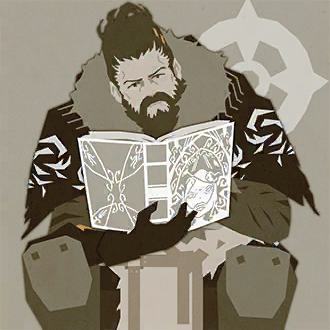
Hubris [Dreams of Colchis]
I'm a big, blunt guy, which means people often think I'm stupid—
but adventurers need a good grasp on all sorts of things.
Take language, for example. Can't read letters?
Can't read books. Can't read books?
Can't prepare for a new journey.
See, like this book here says... Ummm...
Well, even books you can't read make for great kindling!
"The Brawny Adventurer's Travelogue"
but adventurers need a good grasp on all sorts of things.
Take language, for example. Can't read letters?
Can't read books. Can't read books?
Can't prepare for a new journey.
See, like this book here says... Ummm...
Well, even books you can't read make for great kindling!

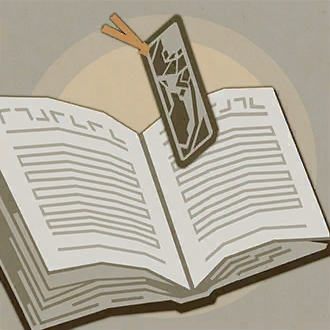
Mythos [Dreams of Colchis]
My fellow travelers tell a tale of a "snow woman" who lives deep in
the mountains. She's gorgeous, and if you find her, she'll grant
your every wish!
Apparently there's also a weathered shrine at the peak where they
used to sacrifice folk in the old days. That's likely where the rumors
come from, 'cause no one can actually grant wishes.
...Right?
"The Brawny Adventurer's Travelogue"
the mountains. She's gorgeous, and if you find her, she'll grant
your every wish!
Apparently there's also a weathered shrine at the peak where they
used to sacrifice folk in the old days. That's likely where the rumors
come from, 'cause no one can actually grant wishes.
...Right?

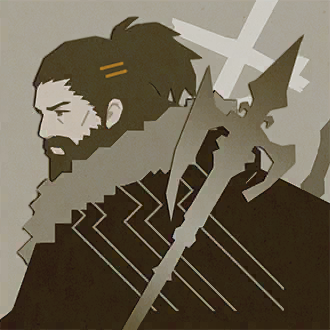
Alpha [Dreams of Colchis]
I lived like an animal as a kid: Stole what I needed, slept on the
ground and in alleys, and turned away everyone who tried to help.
But there was one man who saw past all that and took me in—an
adventurer. He had a lot of dreams that may or may not have been
possible, but I wanted to try and see them all the same.
"The Brawny Adventurer's Travelogue"
ground and in alleys, and turned away everyone who tried to help.
But there was one man who saw past all that and took me in—an
adventurer. He had a lot of dreams that may or may not have been
possible, but I wanted to try and see them all the same.

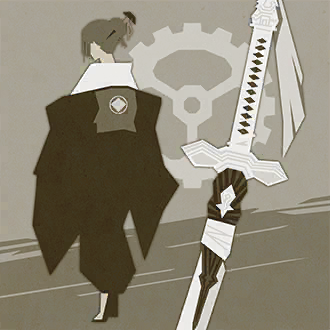
Destiny [The Wanted Man]
This is fate—I'm sure of it! She MUST have been attracted to me
when we met at the shop that day! I mean, why else would she
expose herself to danger and save me from that terrible thug?
Well, that's it. I'm going back to the shop to wait.
I just know I'll see her again soon!
"Regarding a Death (The Dead Man's Diary Entry)"
when we met at the shop that day! I mean, why else would she
expose herself to danger and save me from that terrible thug?
Well, that's it. I'm going back to the shop to wait.
I just know I'll see her again soon!


Prey [The Wanted Man]
I know him. I saw the whole thing! A streetside killer moved to
attack the guy right as some poor woman was passing by.
But before I could even call for help, the woman had gone and
cut the killer down!
She saved that man, sure as I'm standing here.
"Regarding a Death (A Young Woman's Testimony)"
attack the guy right as some poor woman was passing by.
But before I could even call for help, the woman had gone and
cut the killer down!
She saved that man, sure as I'm standing here.

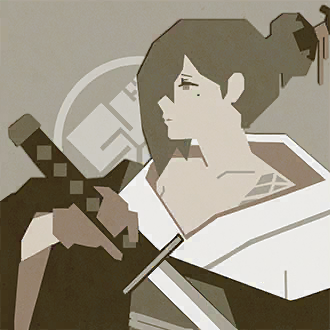
Meetings [The Wanted Man]
Him? Aye, I remember this well—that's the day that lady
came 'round. Been raining for days, so it had, but he was clearly
enchanted by her 'cause he started callin' out. 'Course she paid
him no mind.
I tell ya, I've been runnin' this shop for an age, but I ain't never seen
a lady who was so damn beautiful in all my days!
"Regarding a Death (A Shopkeeper's Testimony)"
came 'round. Been raining for days, so it had, but he was clearly
enchanted by her 'cause he started callin' out. 'Course she paid
him no mind.
I tell ya, I've been runnin' this shop for an age, but I ain't never seen
a lady who was so damn beautiful in all my days!

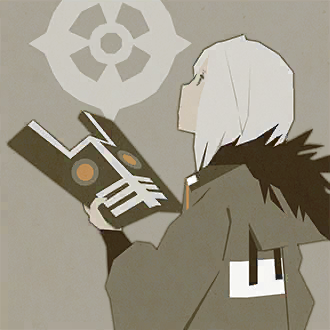
Heart to Heart [Of Kings and Soldiers]
The war is finally over, but it's only a matter of time before our
king begins a new one.
There's a rumor floating about that he tossed a soldier who didn't
prove useful into the castle storehouse. What awful treatment!
They risked their life for him, and he responds with abandonment?
Sometimes I wonder if a heart even beats in his chest.
"Diary of an Old Man in the Kingdom"
king begins a new one.
There's a rumor floating about that he tossed a soldier who didn't
prove useful into the castle storehouse. What awful treatment!
They risked their life for him, and he responds with abandonment?
Sometimes I wonder if a heart even beats in his chest.


Soldiers and Weapons [Of Kings and Soldiers]
The king is scheming something for the start of this war. Rumor has
it he's gathering soldiers that will obey his every command.
Does he really think such people exist?
We've already lost so many to these endless wars; any left to fight
are not humans, but mere weapons.
Oh, what a mad fool our king is!
"Diary of an Old Man in the Kingdom"
it he's gathering soldiers that will obey his every command.
Does he really think such people exist?
We've already lost so many to these endless wars; any left to fight
are not humans, but mere weapons.
Oh, what a mad fool our king is!


A King and His People [Of Kings and Soldiers]
Today that fool of a king declared war once again.
He never thinks of the soldiers when he does this—and trust me,
there can be no war without soldiers.
But more importantly, what of the people?
Do the royals understand how we suffer because of
their selfishness?
"Diary of an Old Man in the Kingdom"
He never thinks of the soldiers when he does this—and trust me,
there can be no war without soldiers.
But more importantly, what of the people?
Do the royals understand how we suffer because of
their selfishness?


The Kingdom's Fate [Musings of a Hunter]
Mechanical soldiers fetch a pretty penny. They're tough, sure,
but hate makes the price all that much sweeter.
See, the kingdom's clockwork men eventually went mad, rampaging
out of control and slaughtering the smallfolk. Most are long gone
now, but a few still remain—and my purpose is to hunt them down
and kill them all.
"Recollections of a Lone Bounty Hunter"
but hate makes the price all that much sweeter.
See, the kingdom's clockwork men eventually went mad, rampaging
out of control and slaughtering the smallfolk. Most are long gone
now, but a few still remain—and my purpose is to hunt them down
and kill them all.


Reoccurring Dream [Musings of a Hunter]
The sound of rain on the window paints a scene of my past: Lumber
and people alike crackling as a village transforms into a massive
crematorium.
I crawl in the dirt in search of my sister, but the dream ends when
I lift a piece of fiery debris.
Such images plague me nightly; it seems regret lives on in the
depths of my most secret heart.
"Recollections of a Lone Bounty Hunter"
and people alike crackling as a village transforms into a massive
crematorium.
I crawl in the dirt in search of my sister, but the dream ends when
I lift a piece of fiery debris.
Such images plague me nightly; it seems regret lives on in the
depths of my most secret heart.


The Hunt Begins [Musings of a Hunter]
I stopped bemoaning my lot in life after learning of the outside
world. My experience was common. I accepted my past. So now
I live as a drifter, hunting prey with my new powers.
I believe my path will become an offering to all the things I couldn't
keep safe—and all the things I've lost.
"Recollections of a Lone Bounty Hunter"
world. My experience was common. I accepted my past. So now
I live as a drifter, hunting prey with my new powers.
I believe my path will become an offering to all the things I couldn't
keep safe—and all the things I've lost.

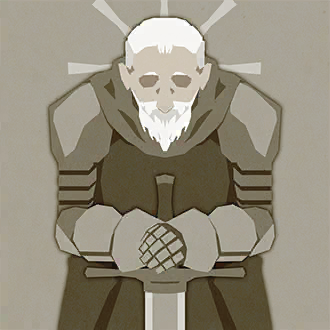
Experience [The Young Lord's Studies]
In order to learn the unchanging fundamental rules and principles of
the world, one must ask questions of an aged master.
Much of what our elders say are truths backed by history, and one
must willingly accept such wisdom.
For though they may lack physical prowess, the aged master will
have matured wisdom and years at their disposal.
"Notes of an Imprisoned Political Thinker"
the world, one must ask questions of an aged master.
Much of what our elders say are truths backed by history, and one
must willingly accept such wisdom.
For though they may lack physical prowess, the aged master will
have matured wisdom and years at their disposal.

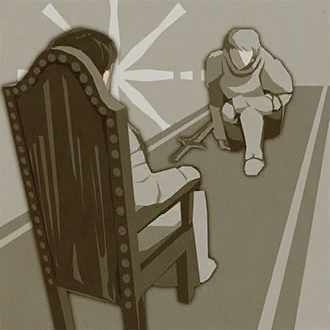
Honesty [The Young Lord's Studies]
Trust vassals who offer counsel that is difficult to hear. Honest
advice requires great courage—far more than saying what a regent
wishes to hear.
As for the king, he must not allow emotion to intrude on state
politics, instead focusing on concrete truths.
One must not be shackled to personal gain and feelings when it
comes to national policy.
"Notes of an Imprisoned Political Thinker"
advice requires great courage—far more than saying what a regent
wishes to hear.
As for the king, he must not allow emotion to intrude on state
politics, instead focusing on concrete truths.
One must not be shackled to personal gain and feelings when it
comes to national policy.